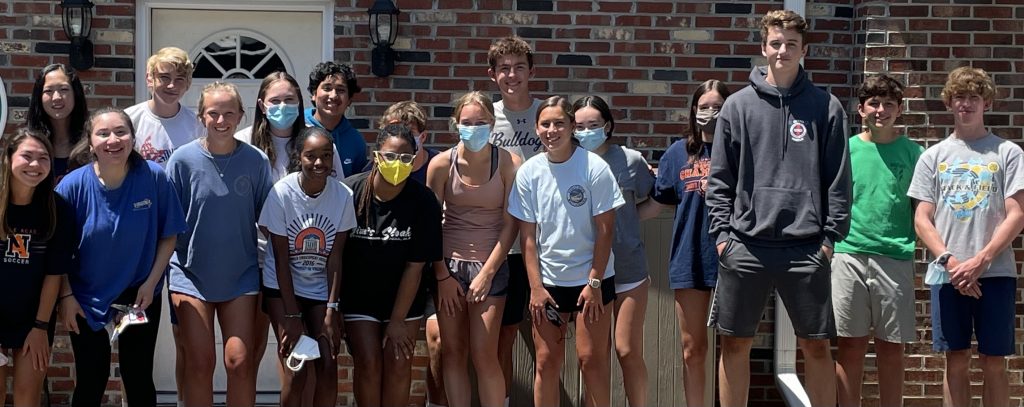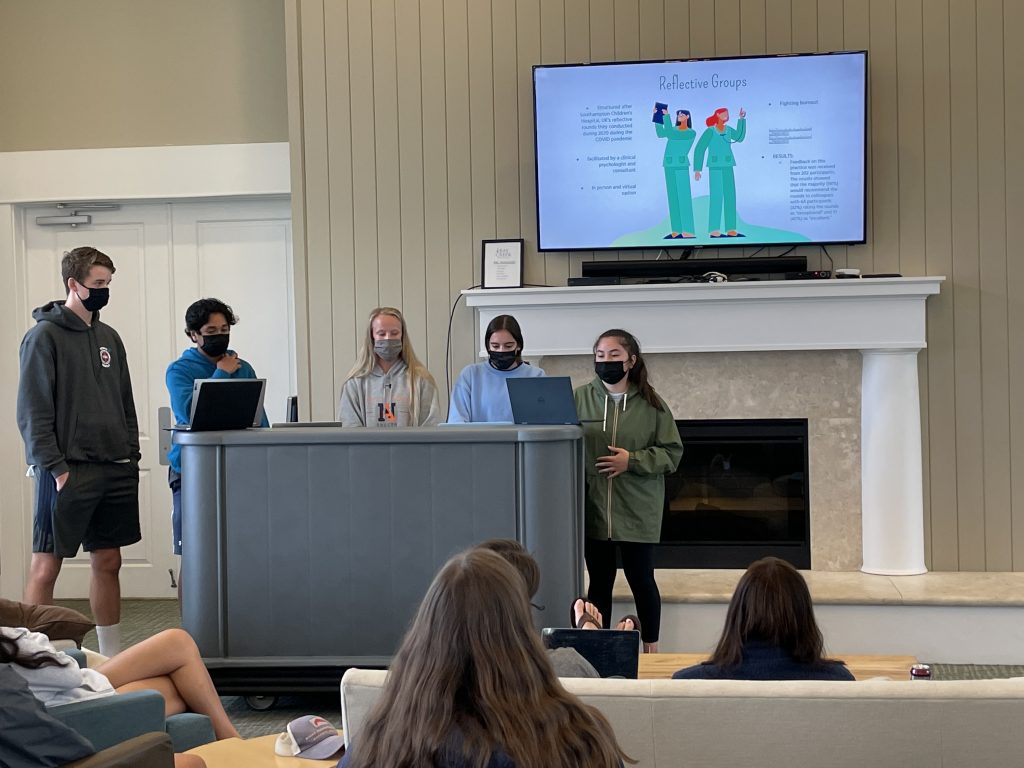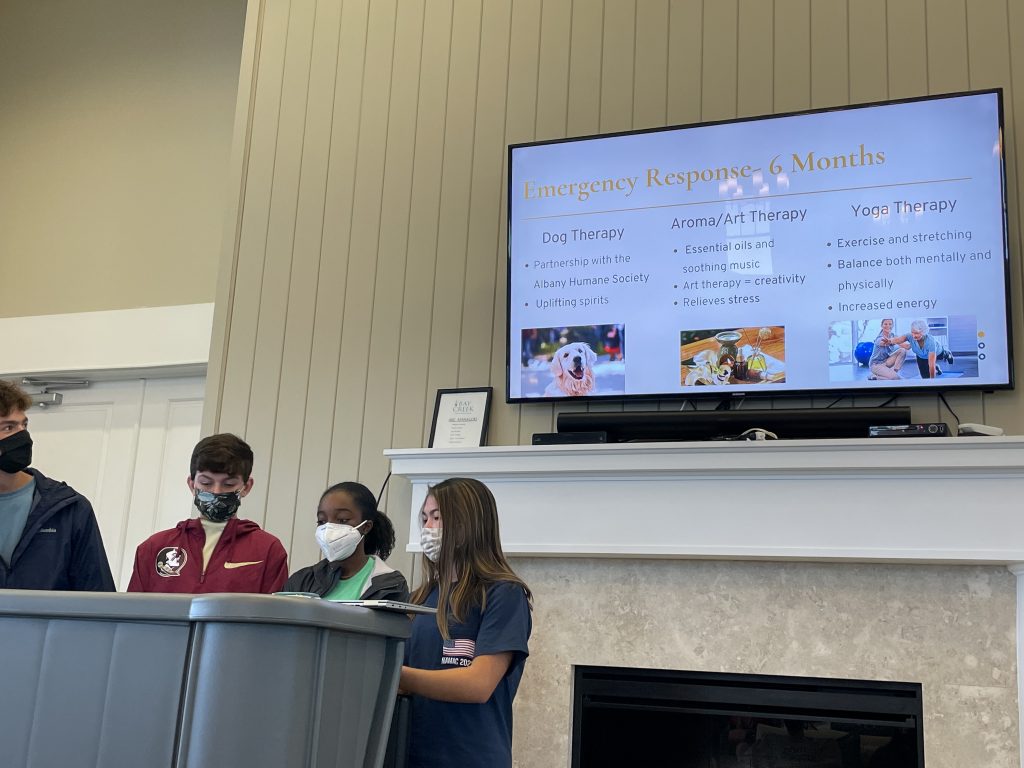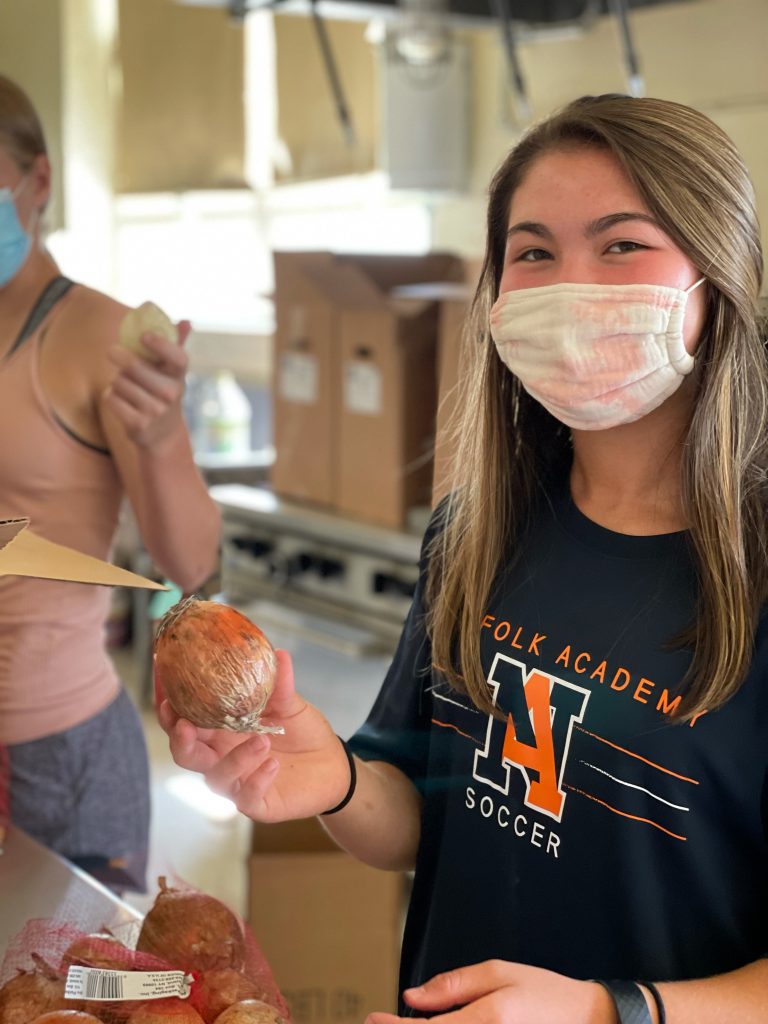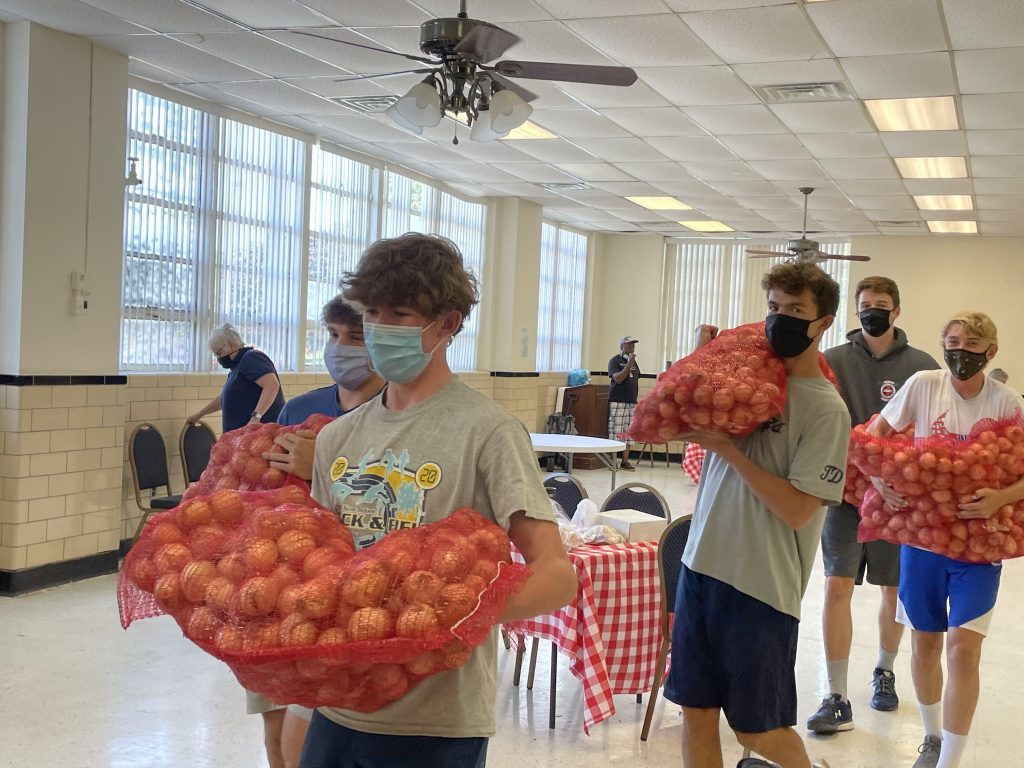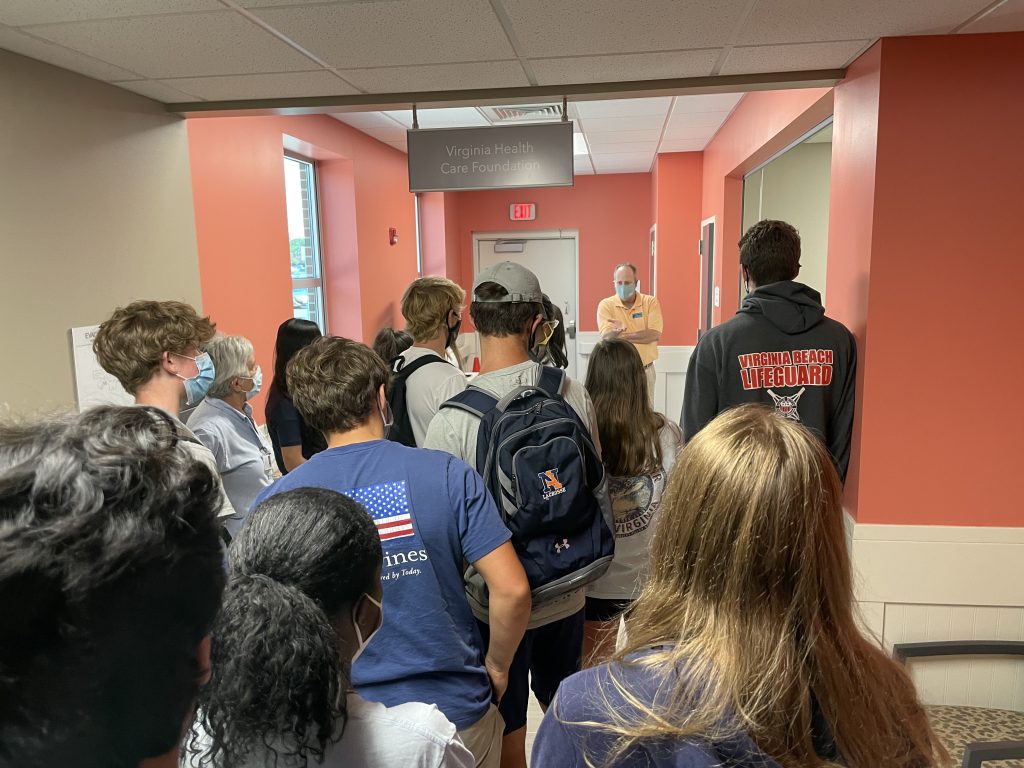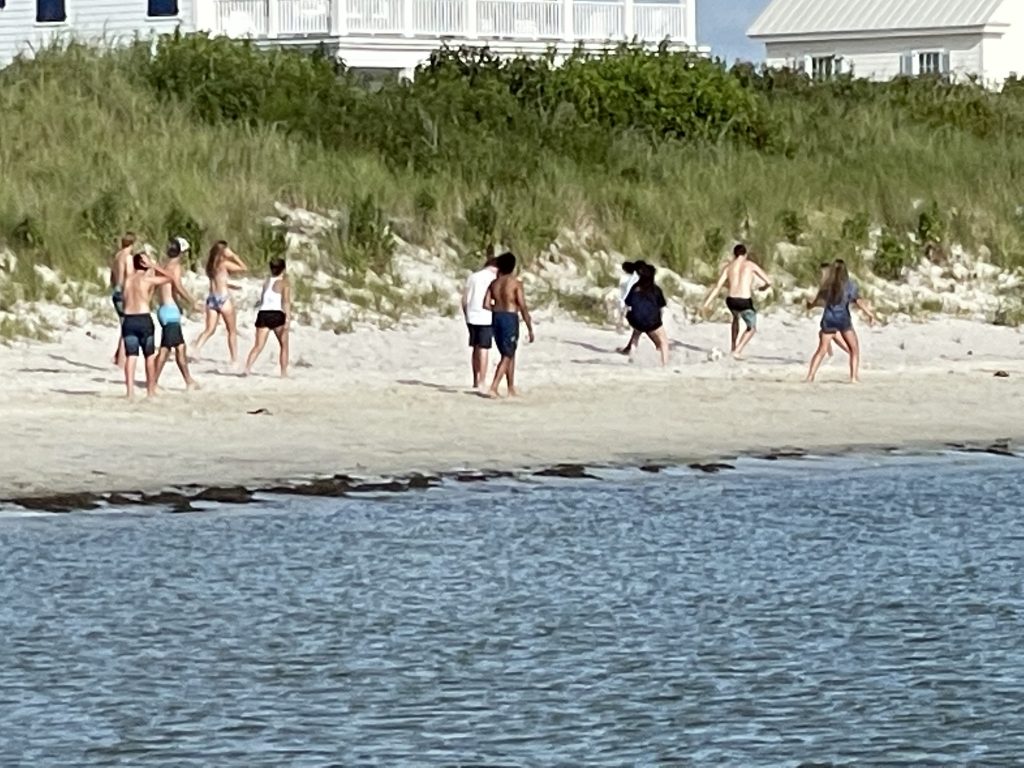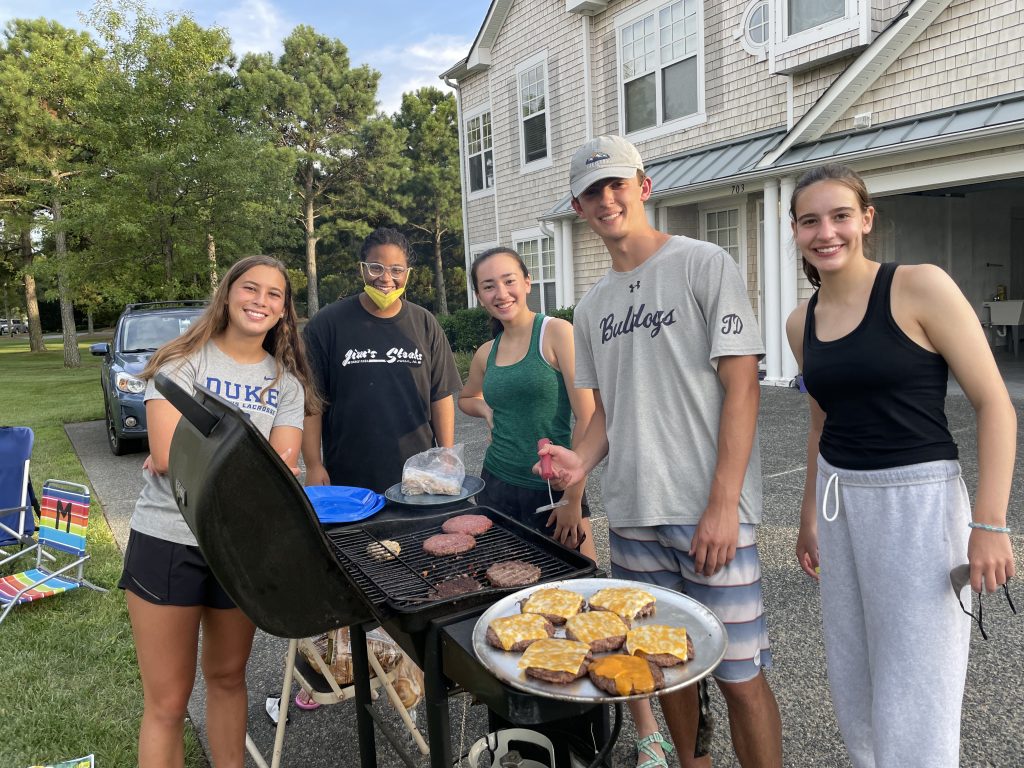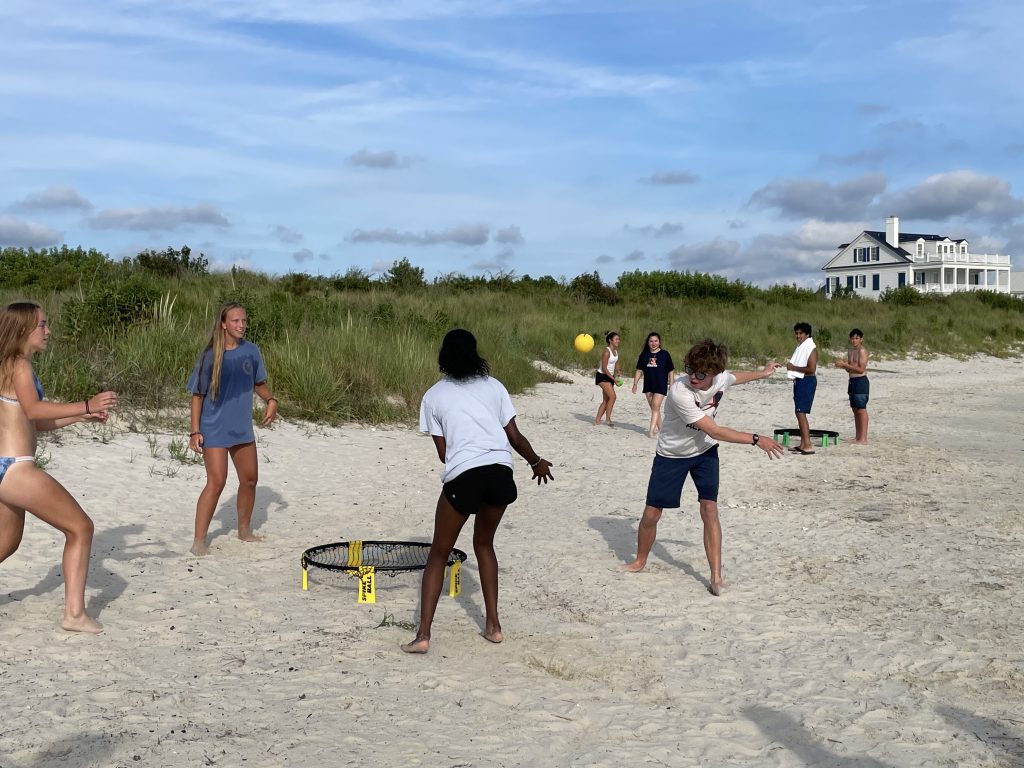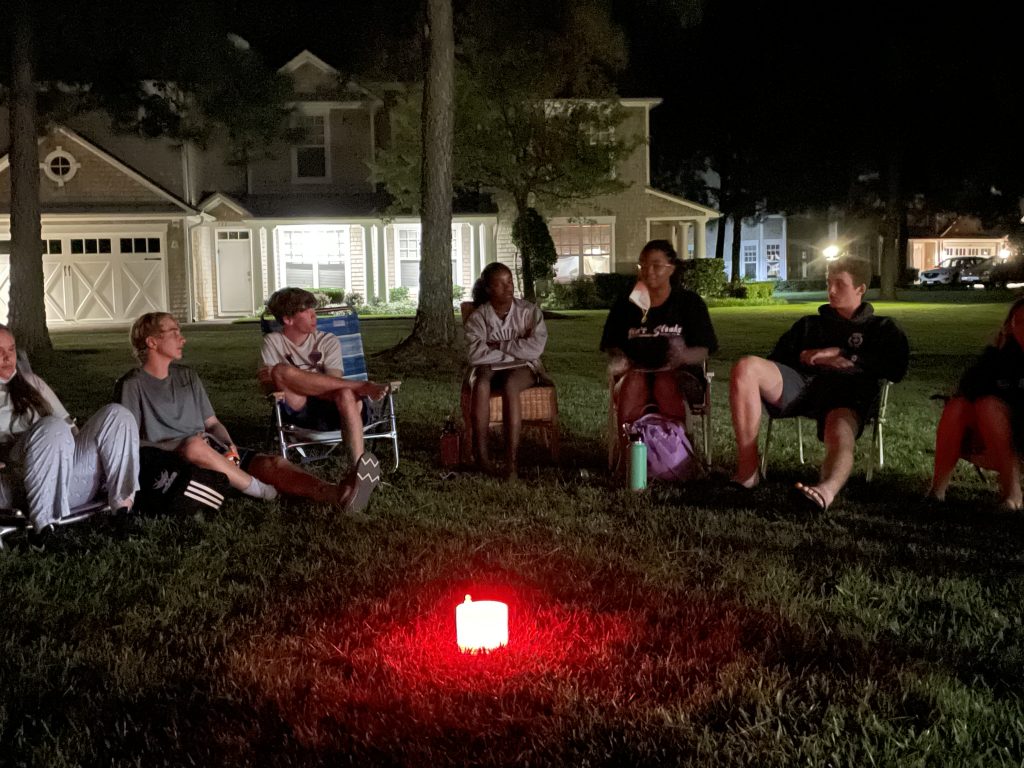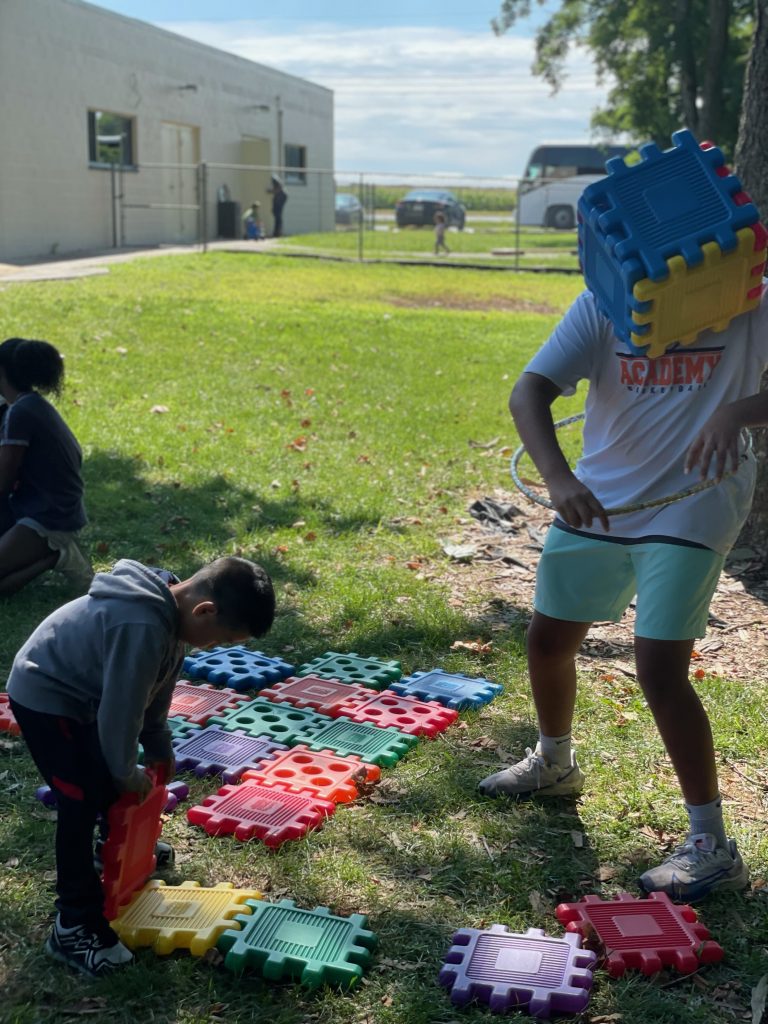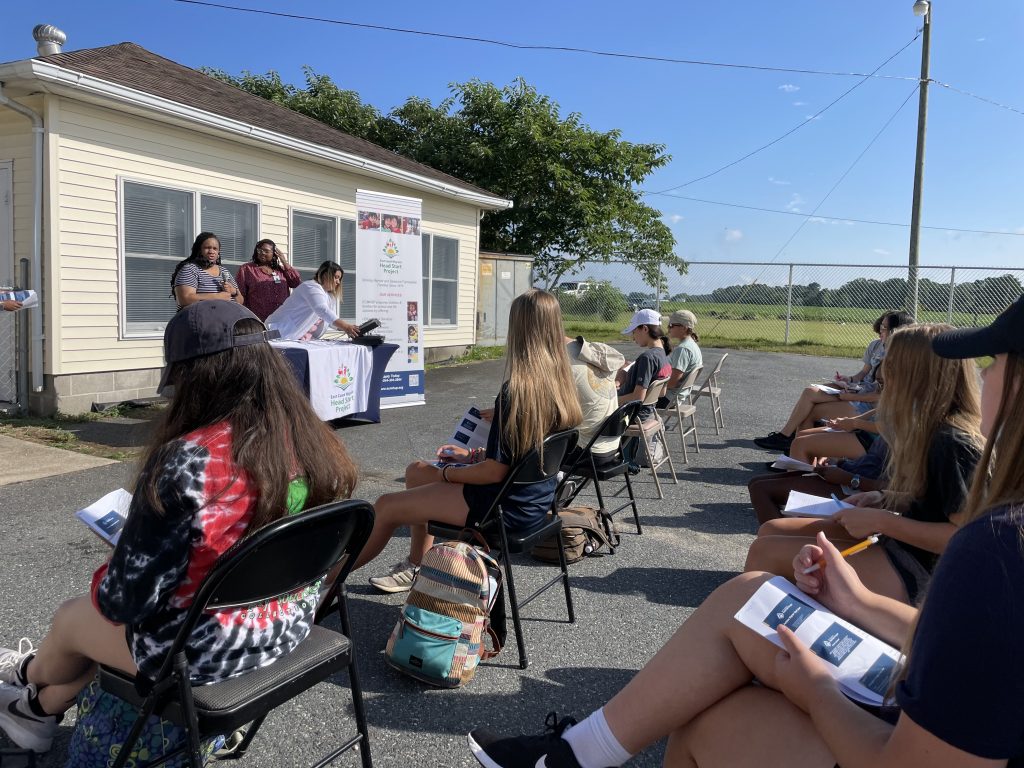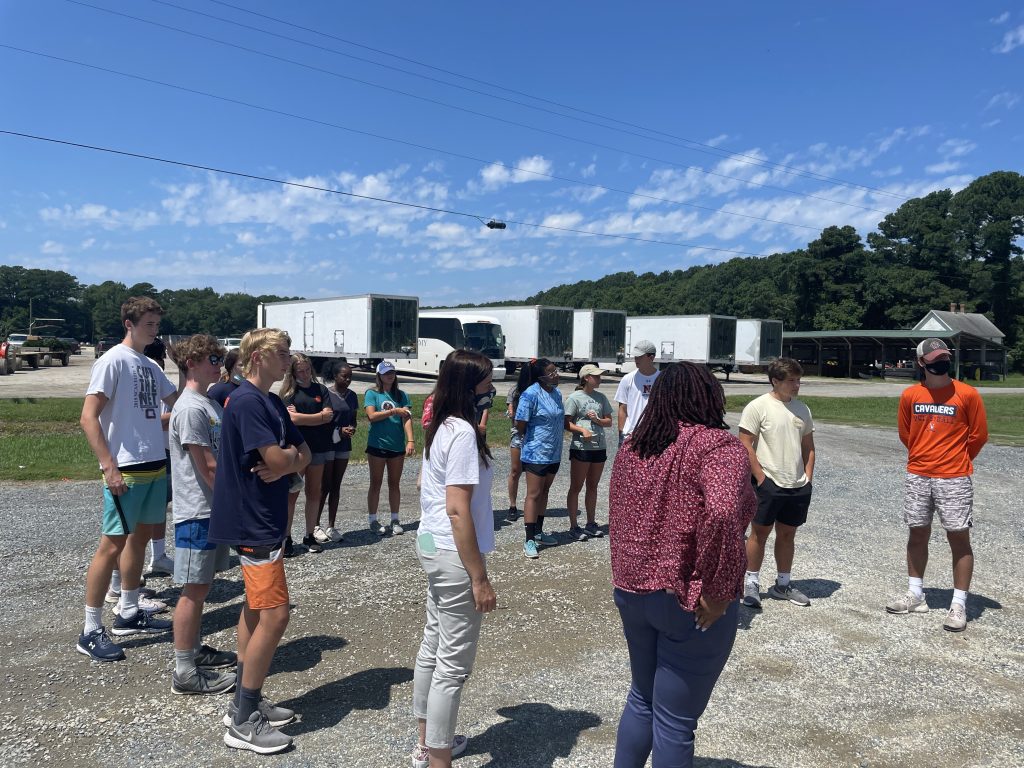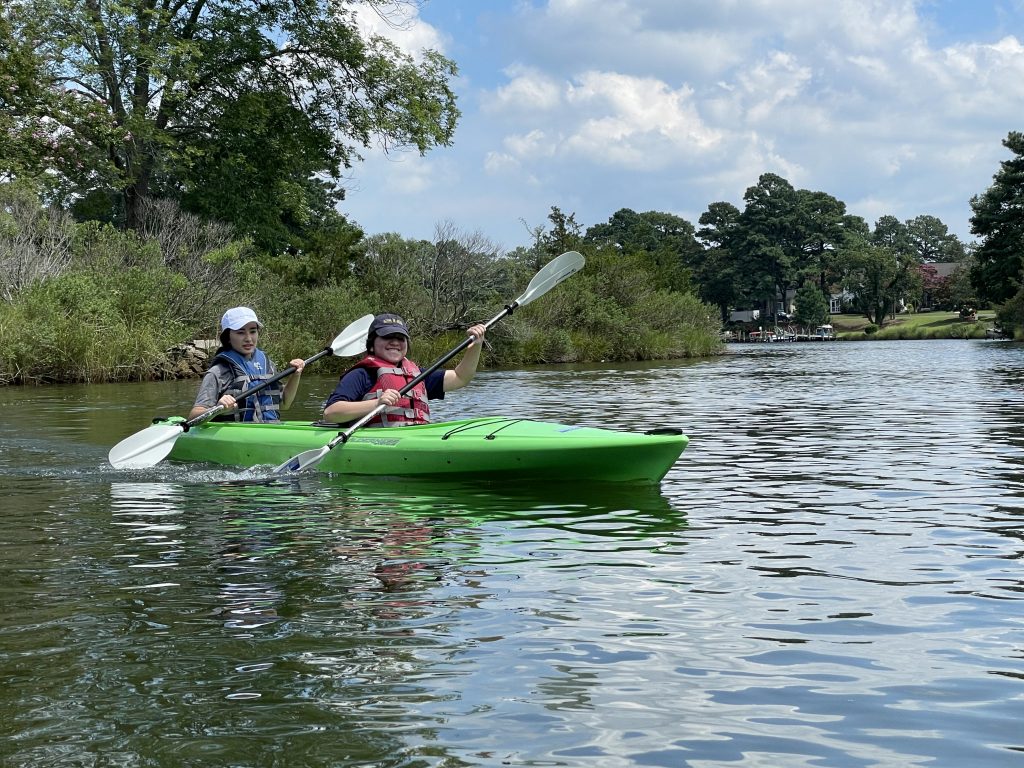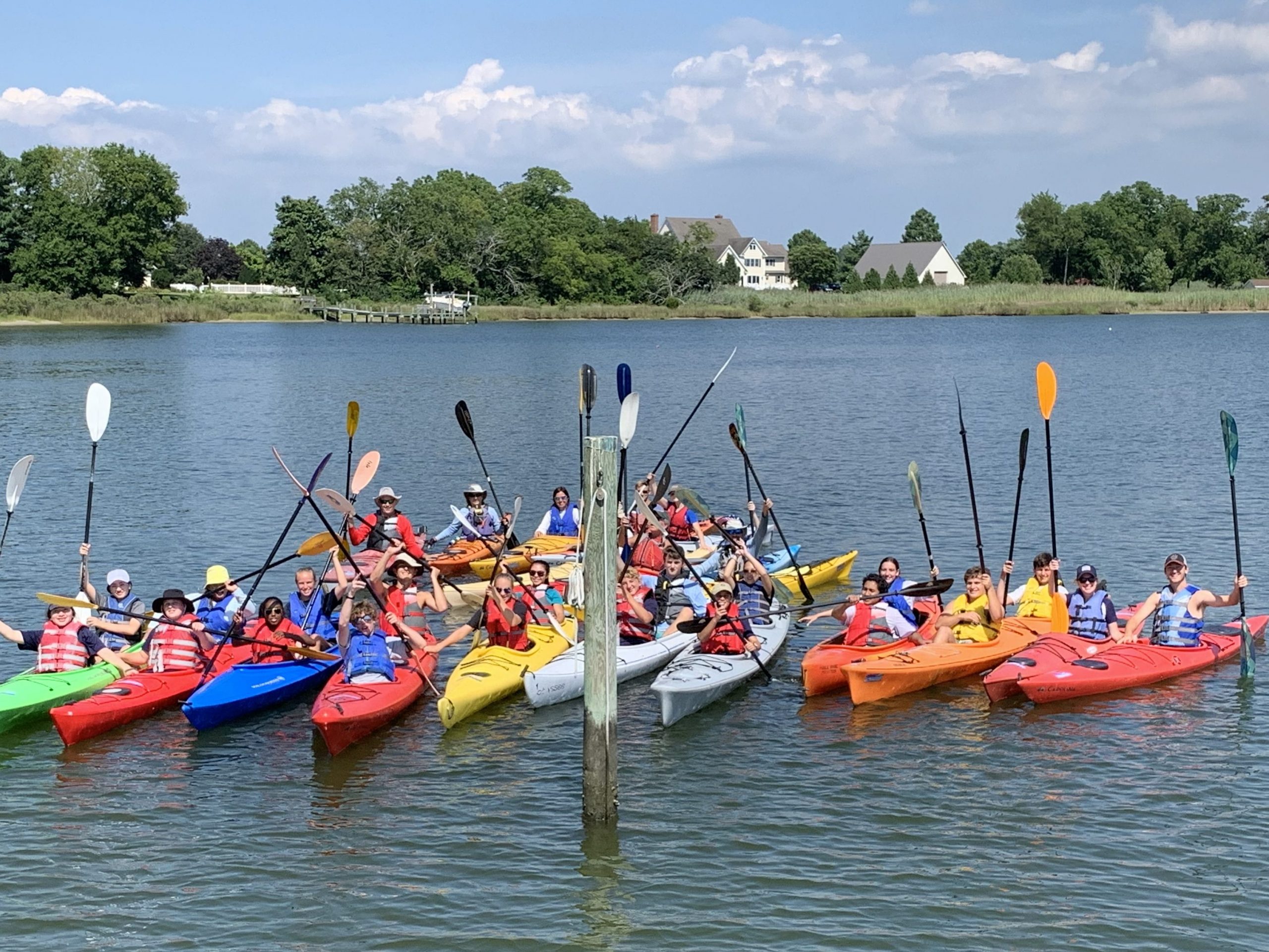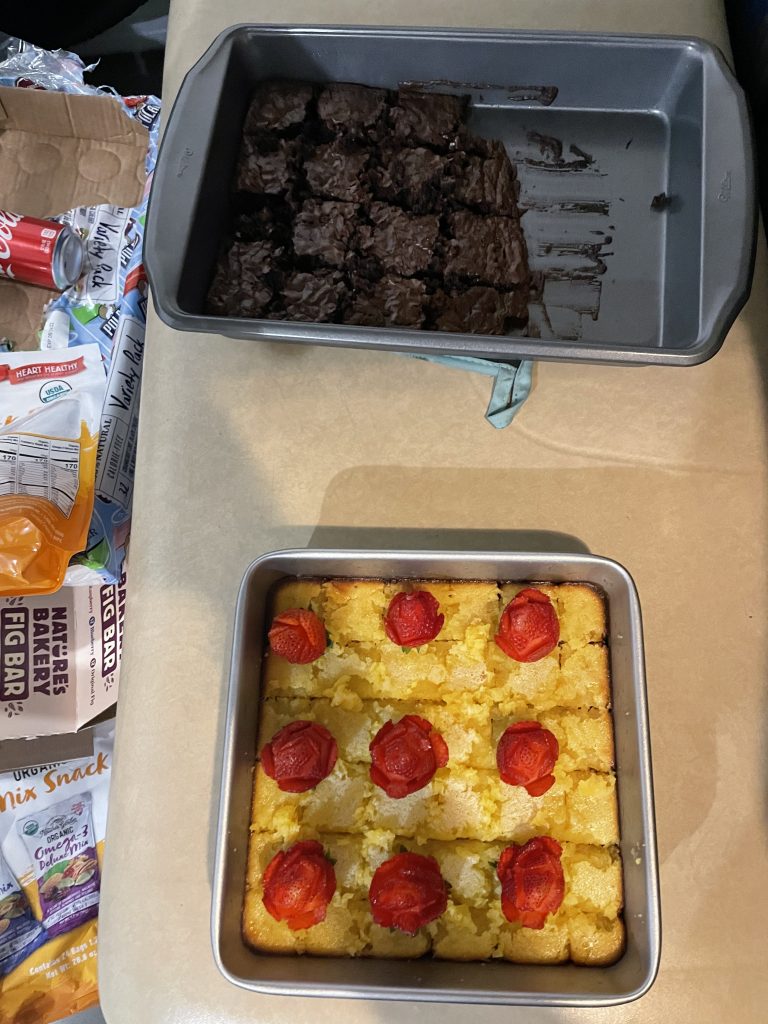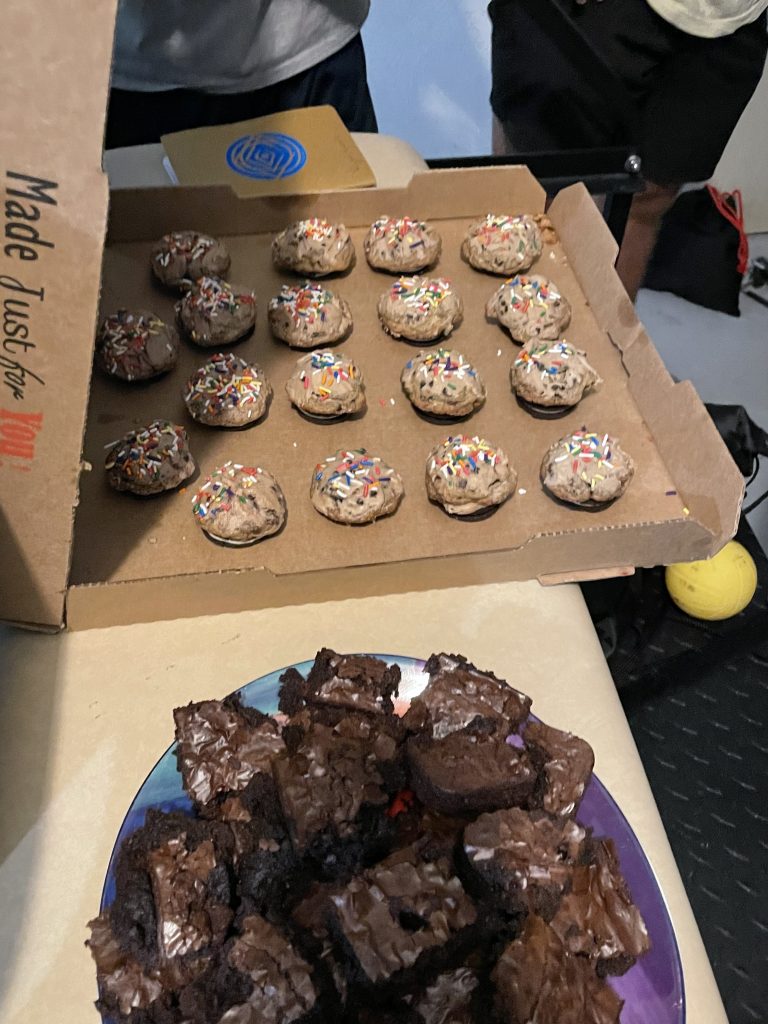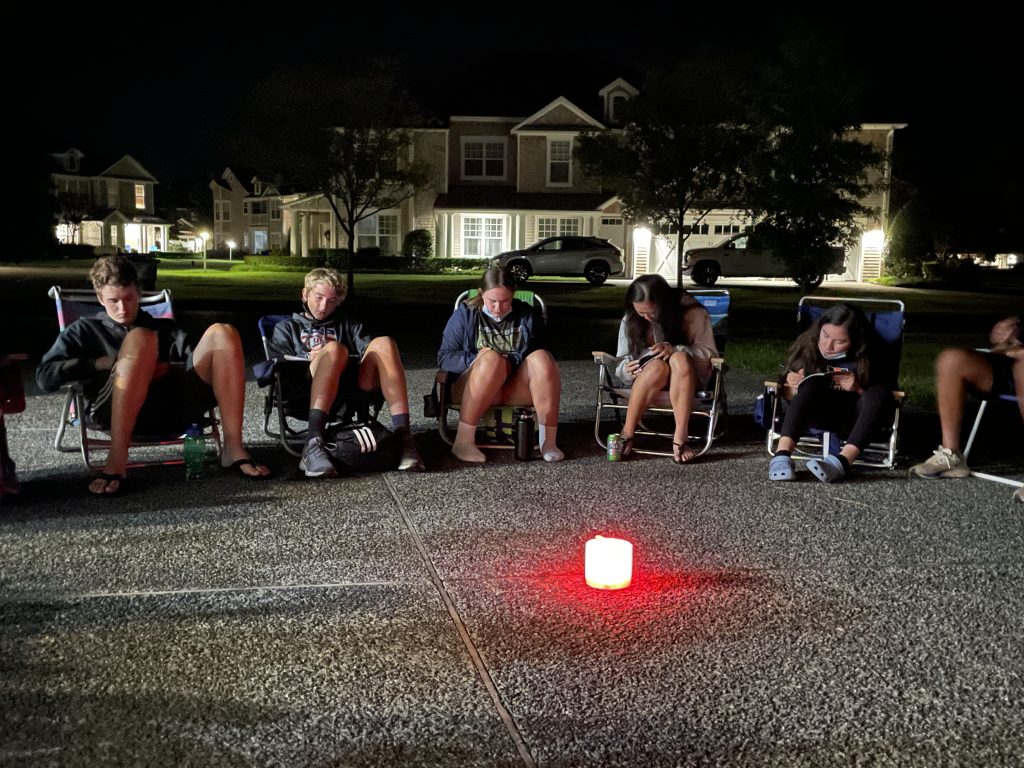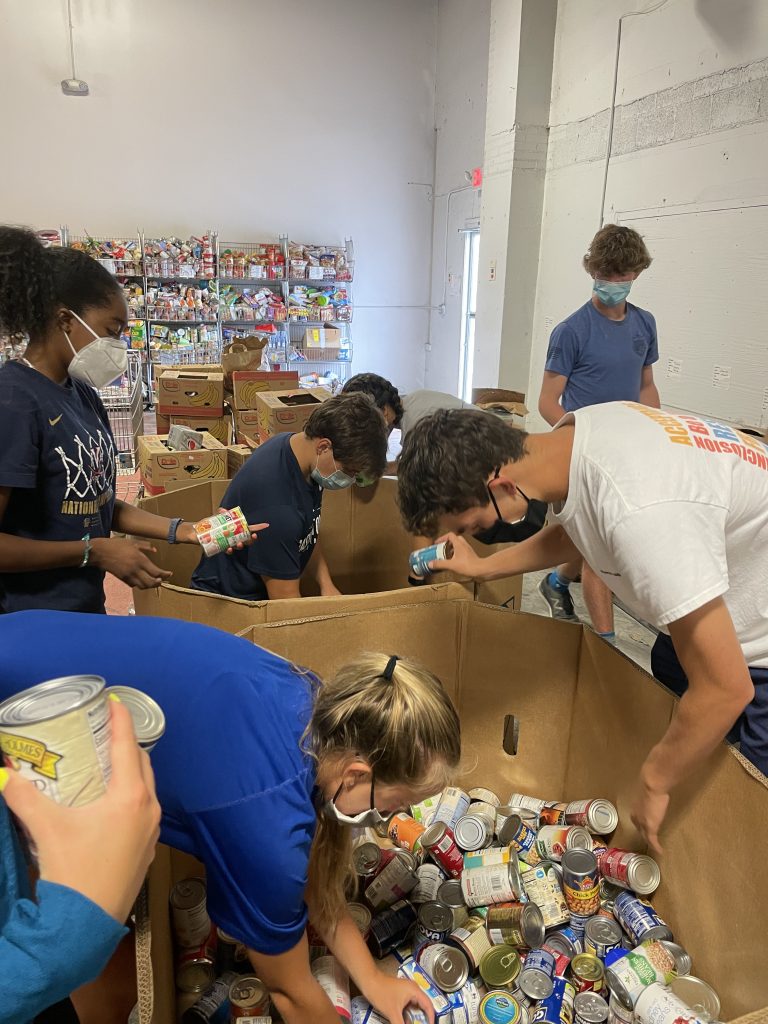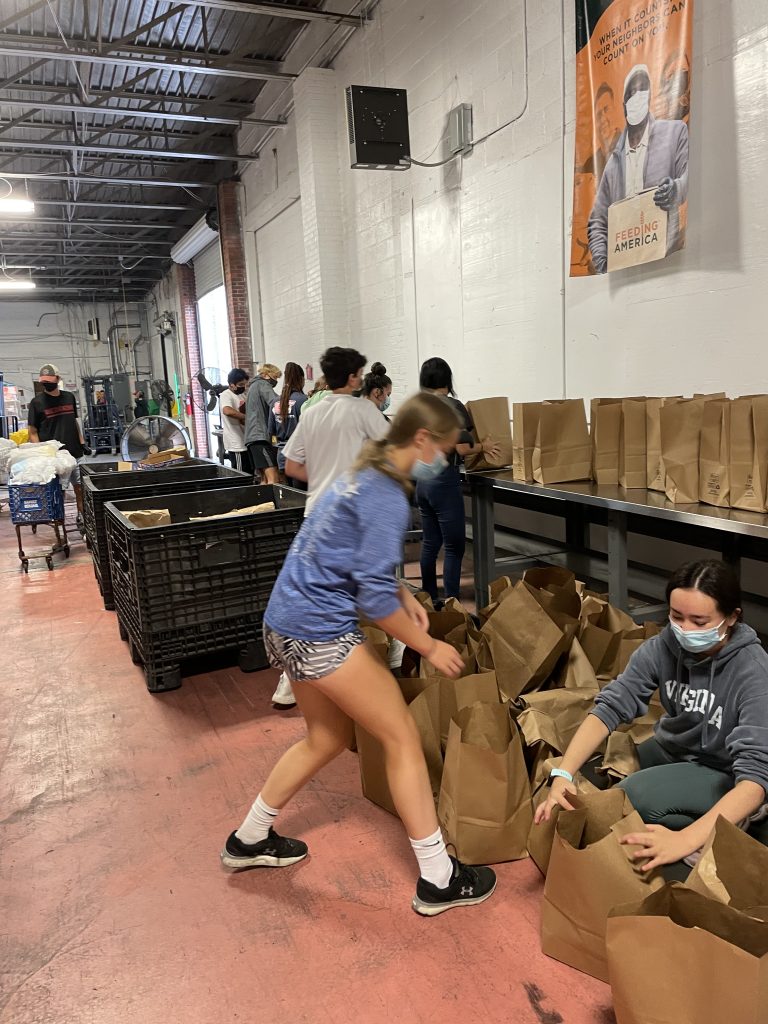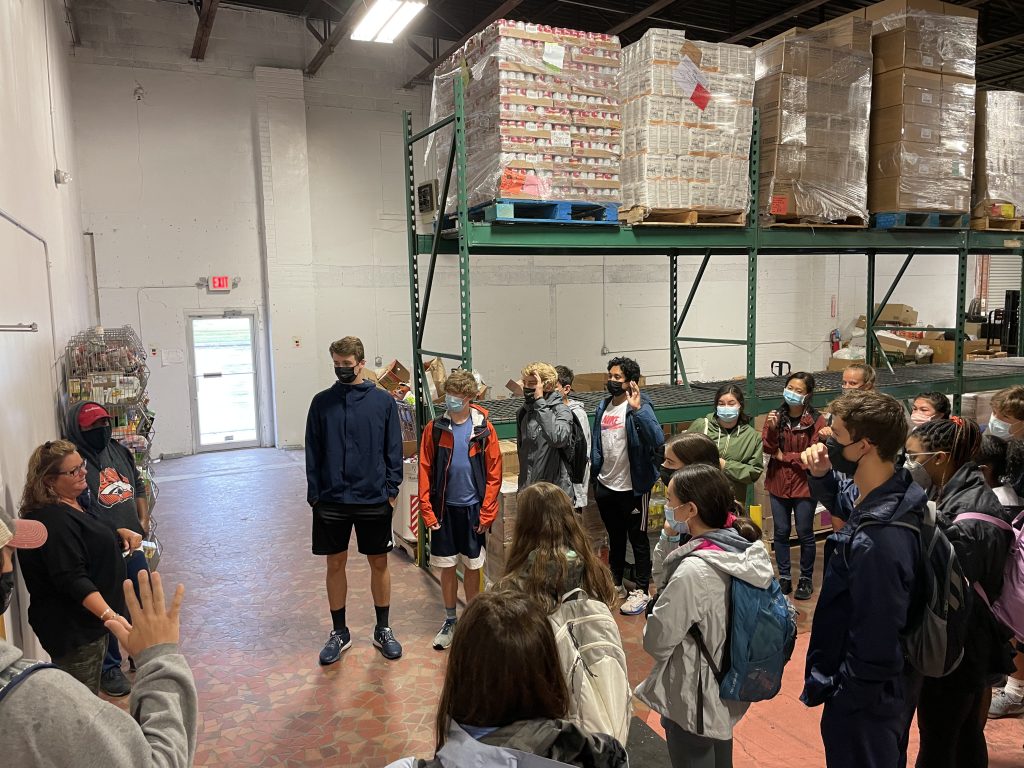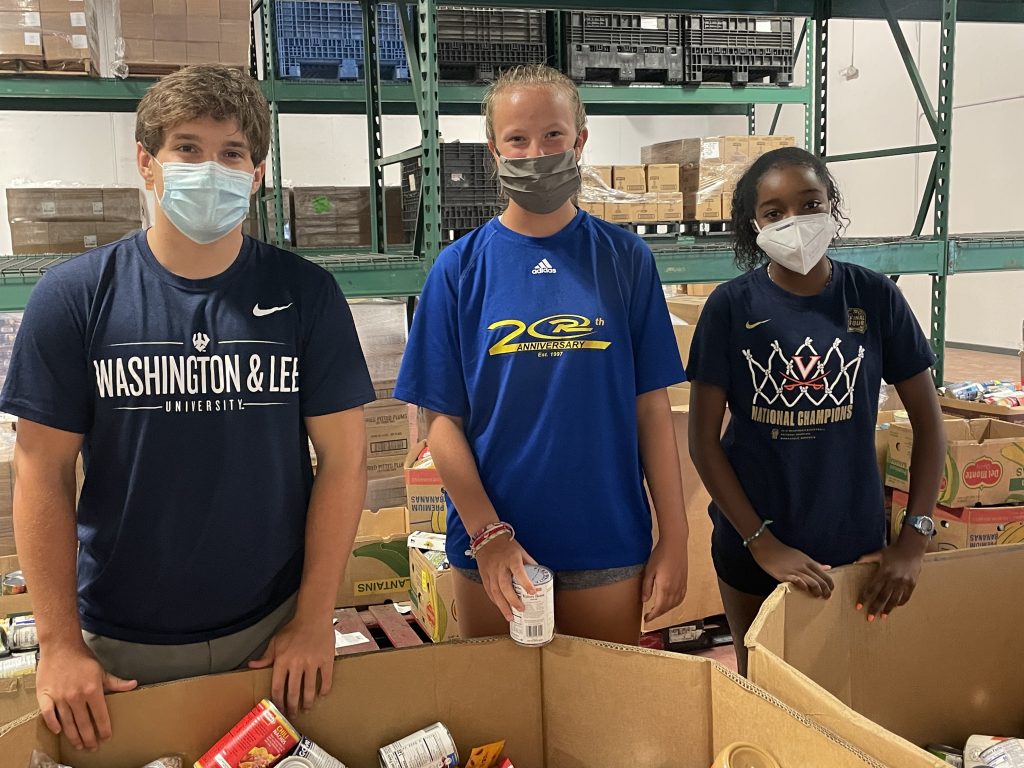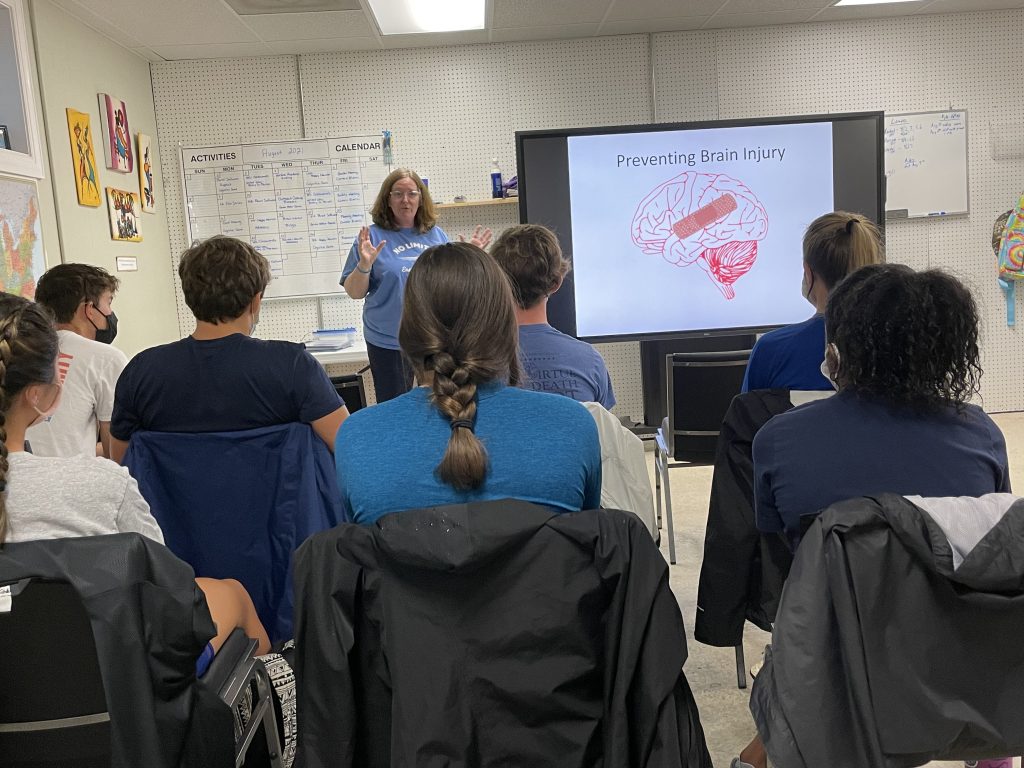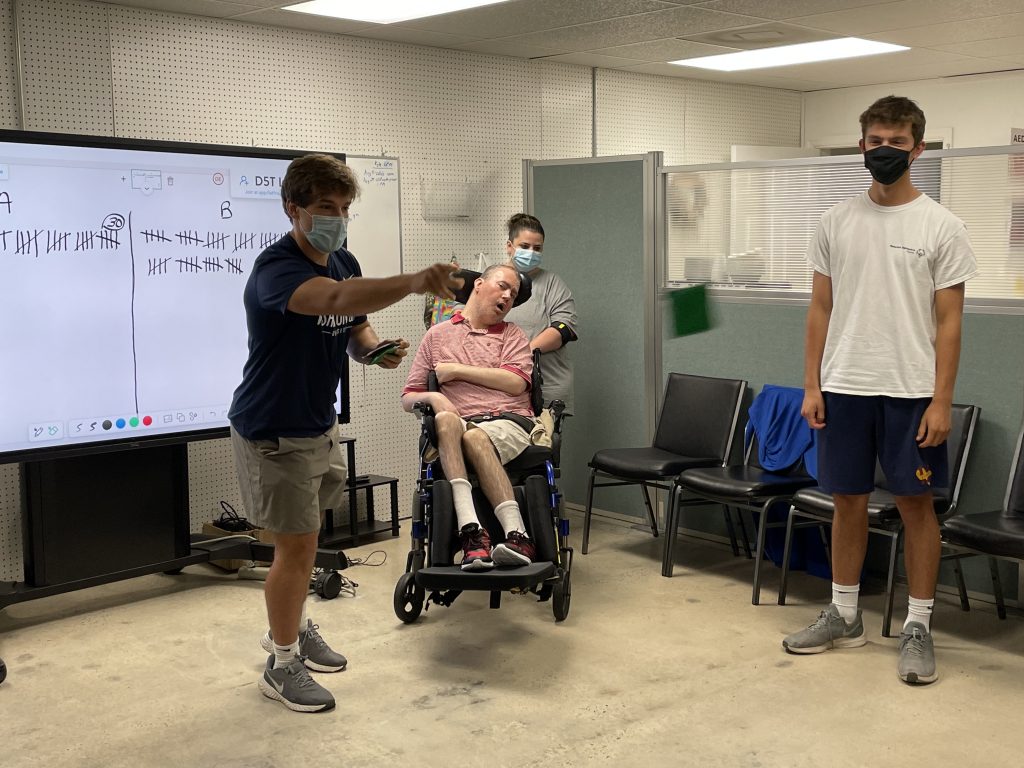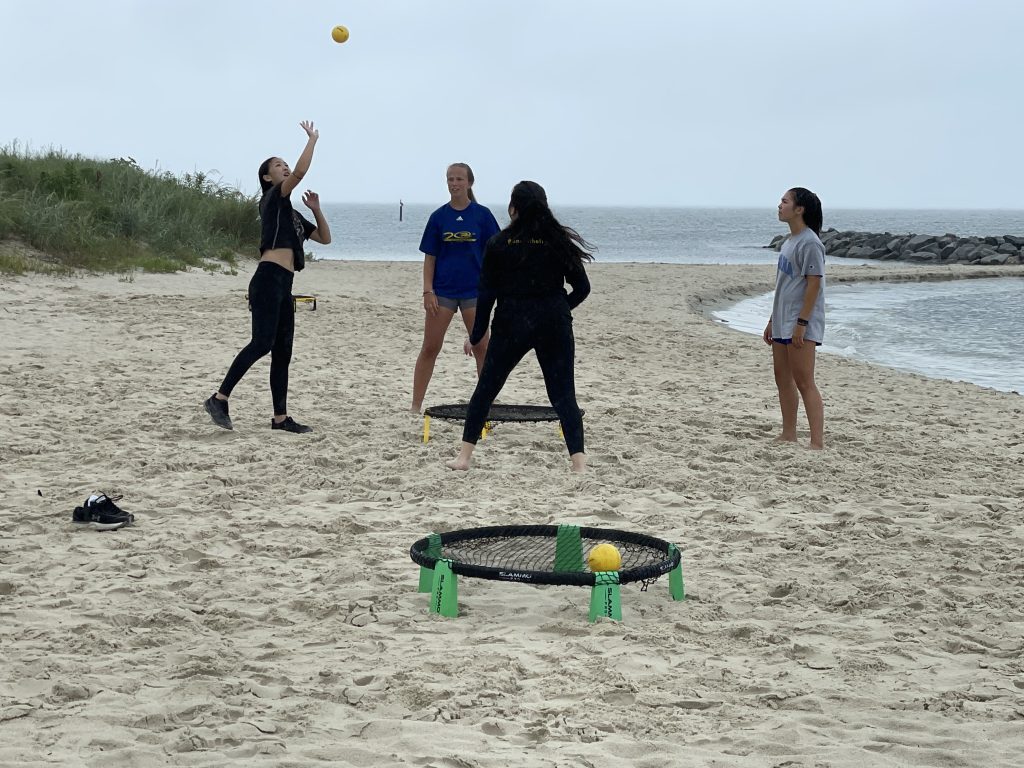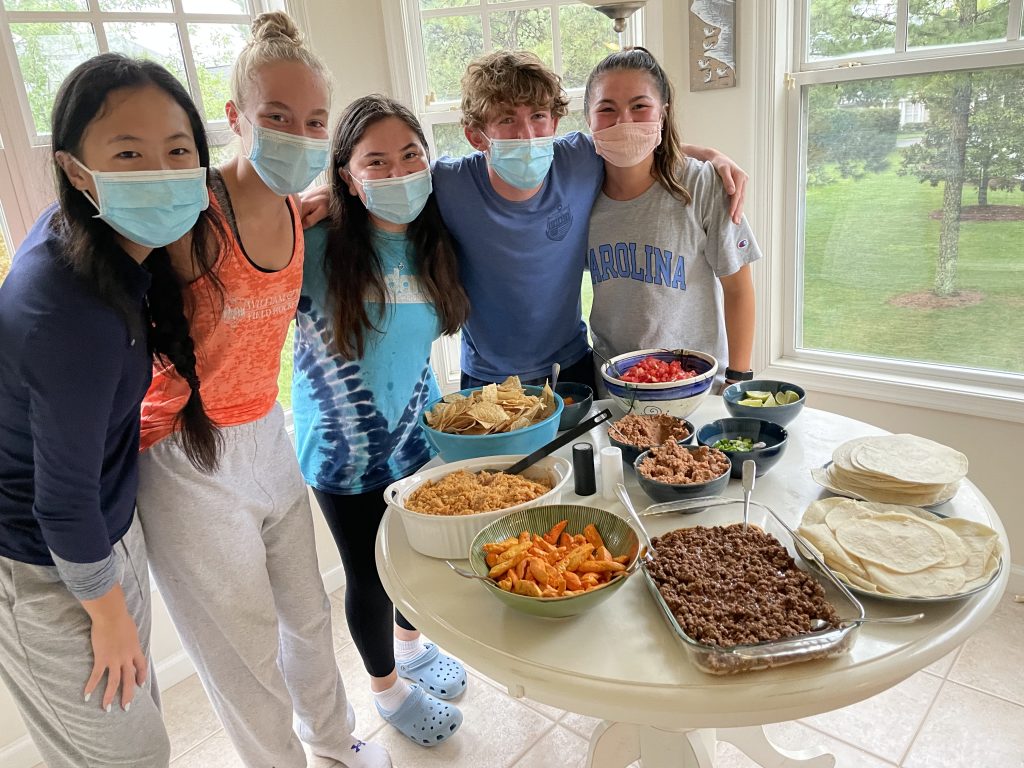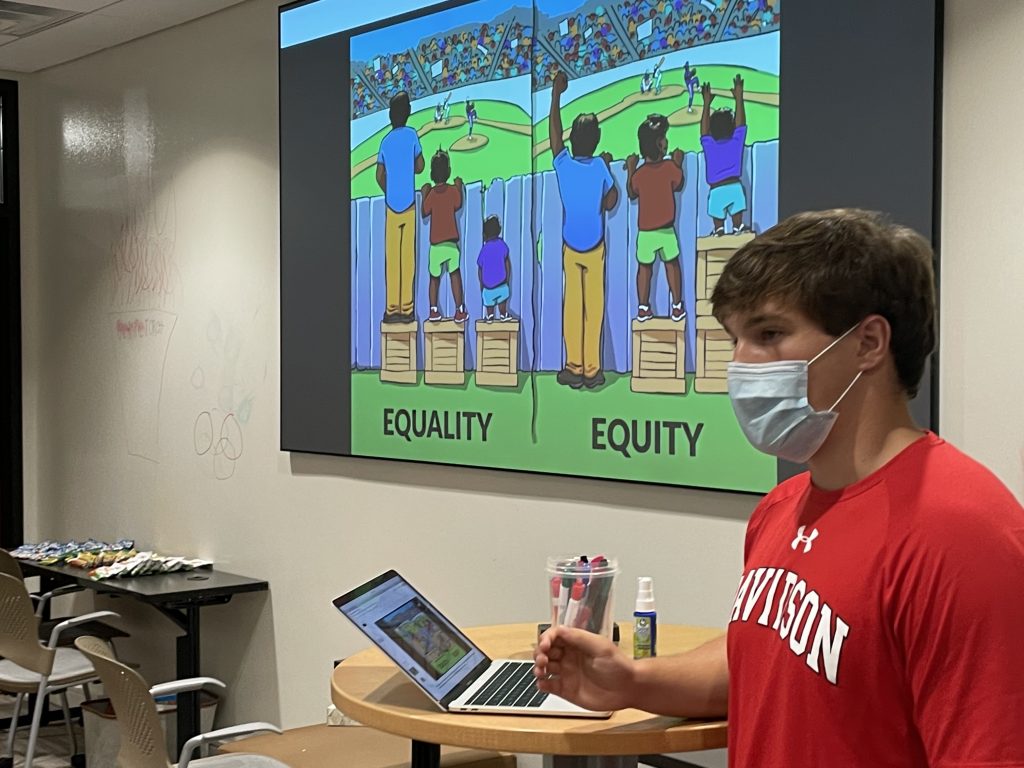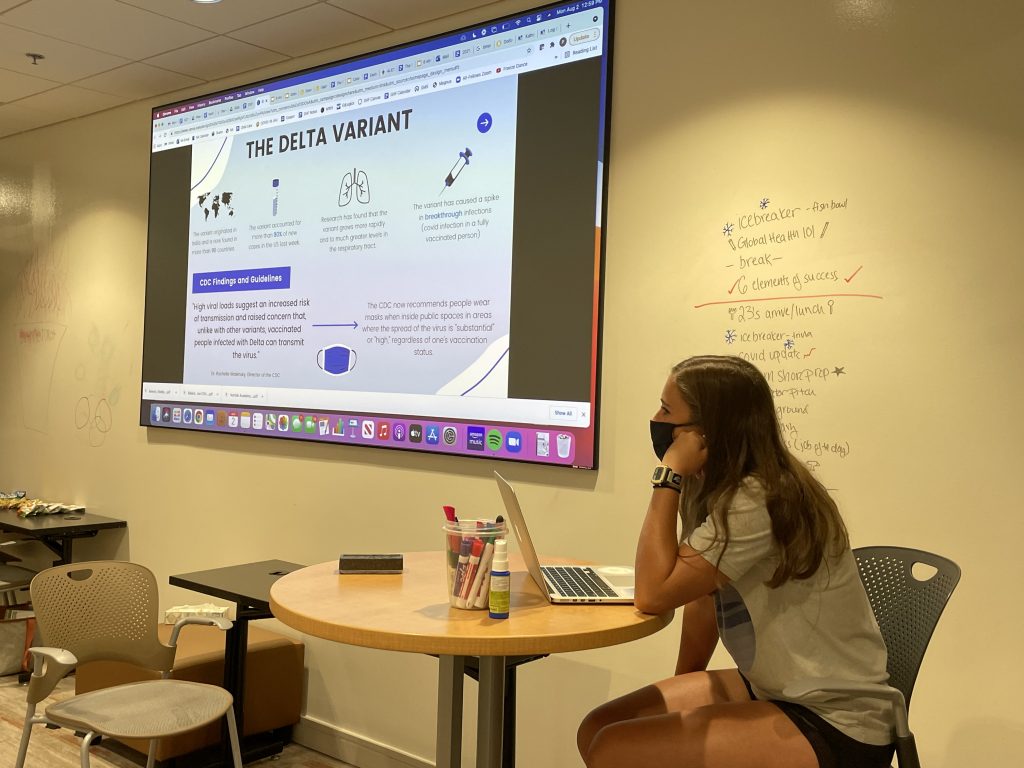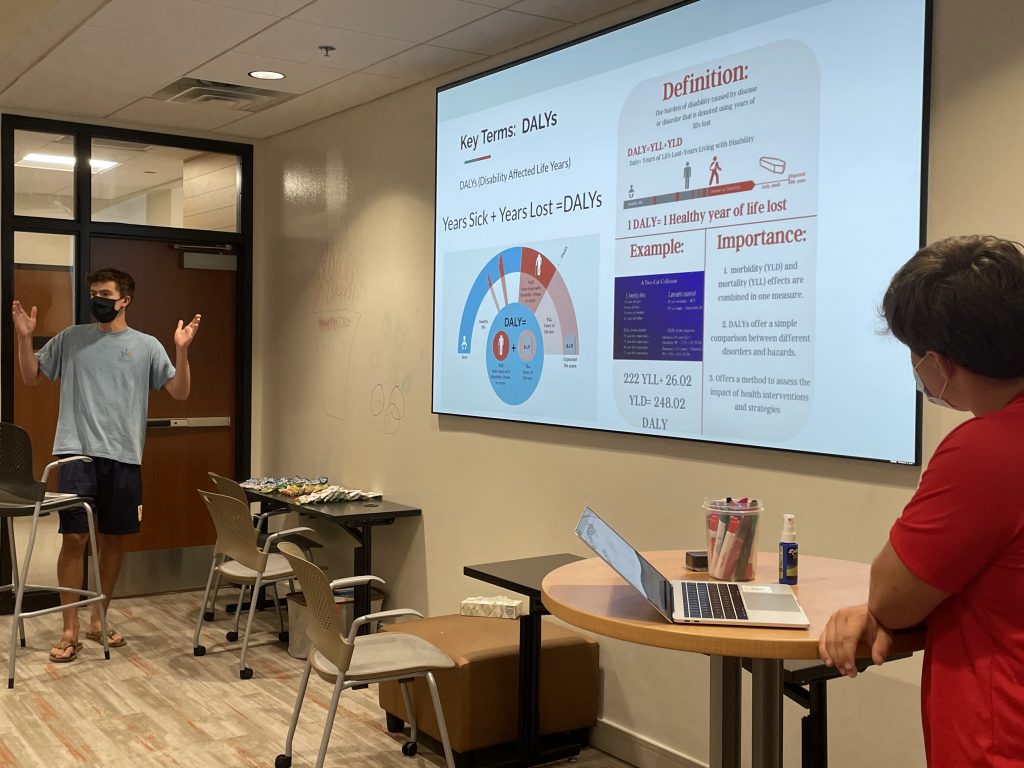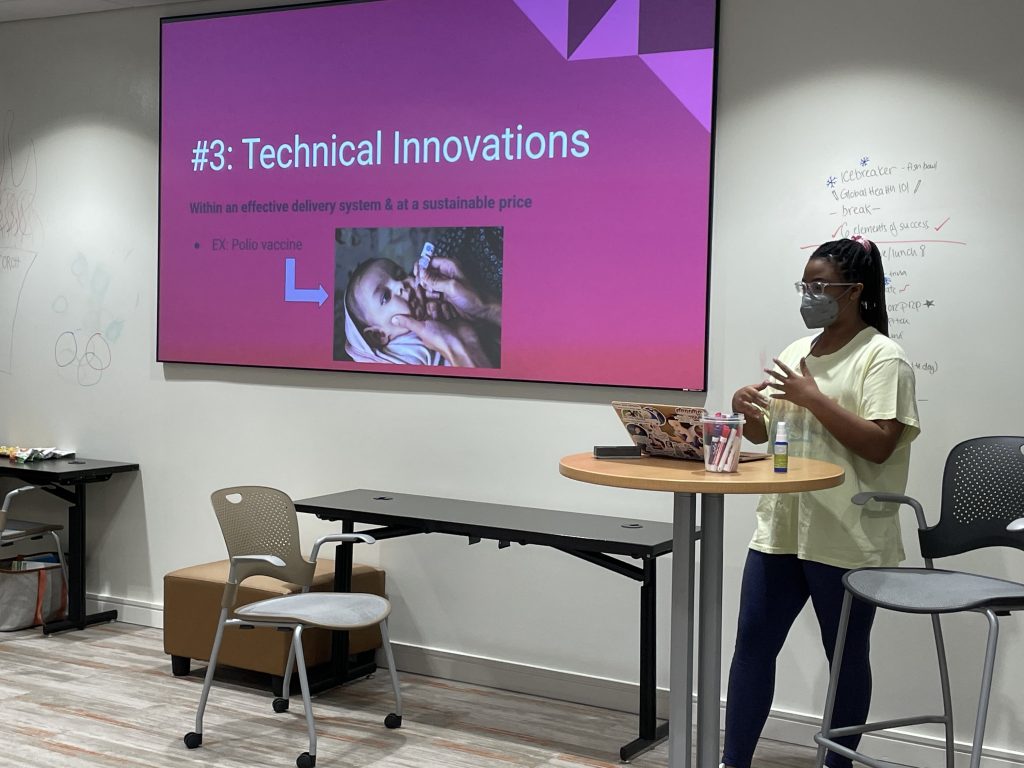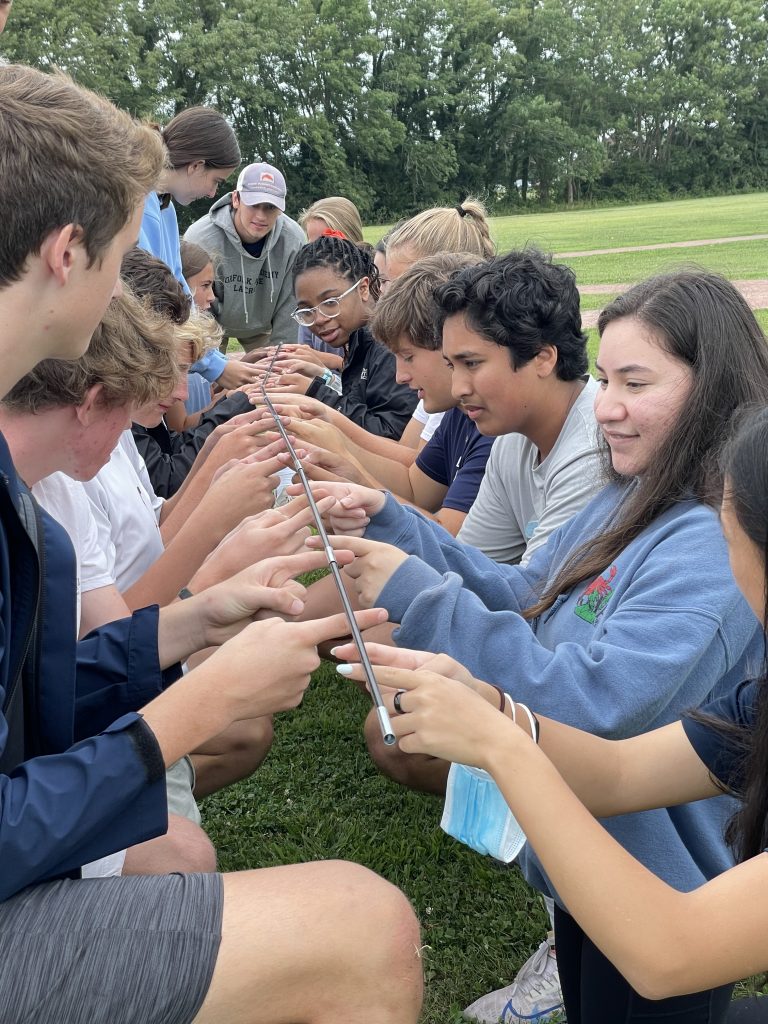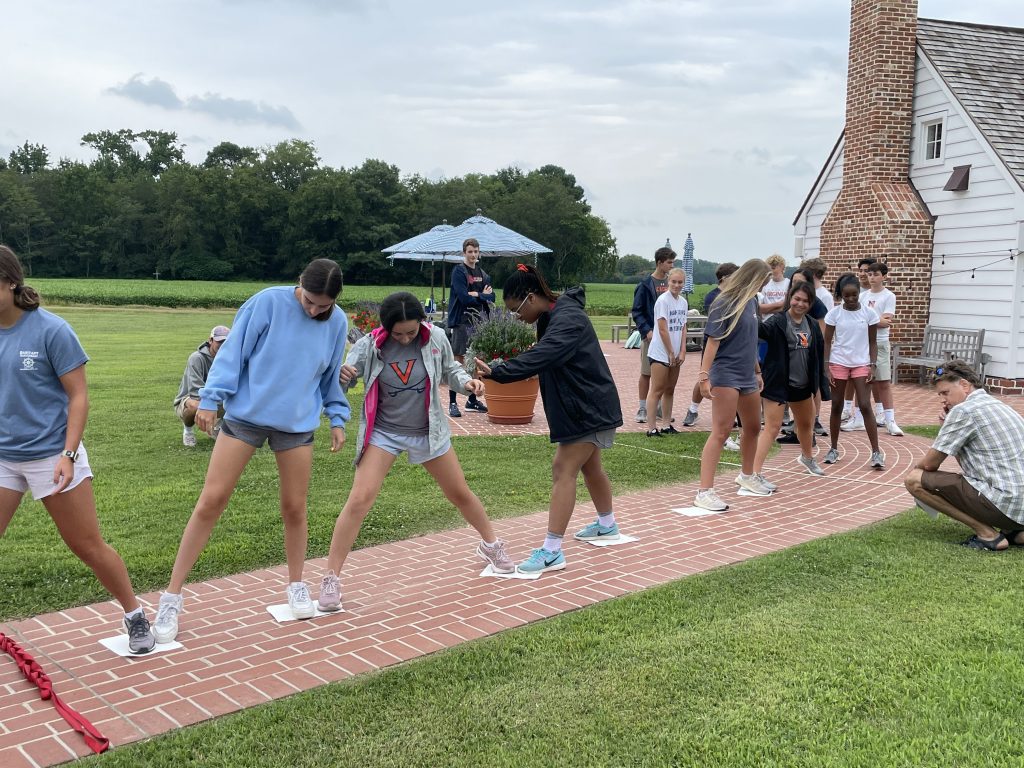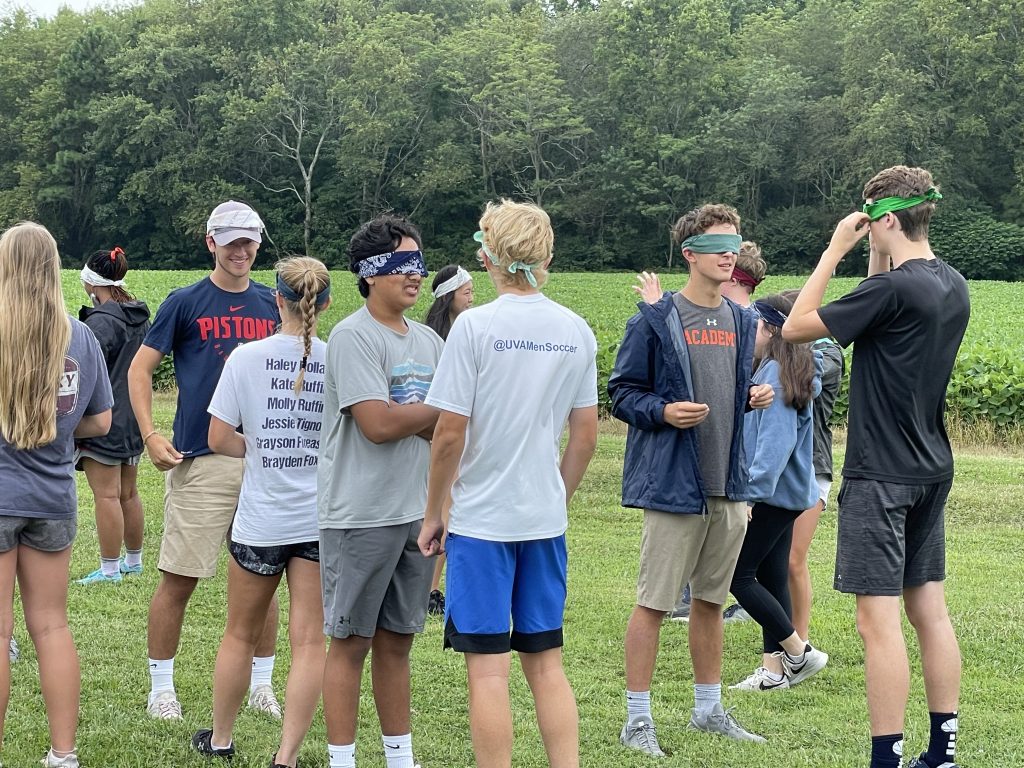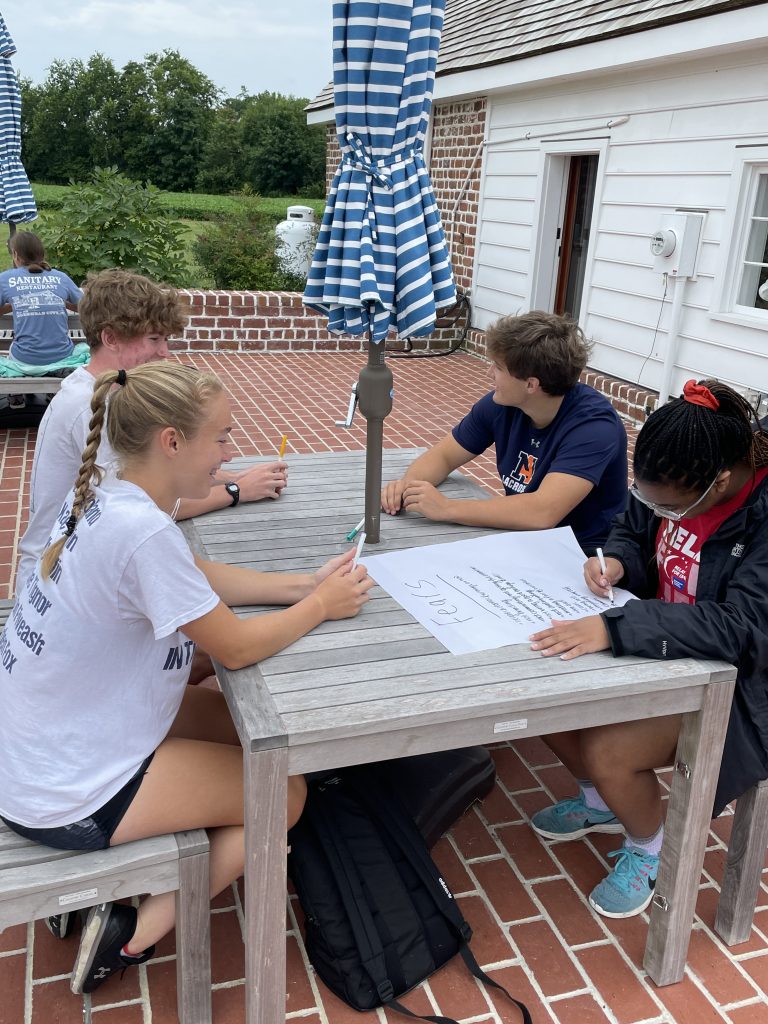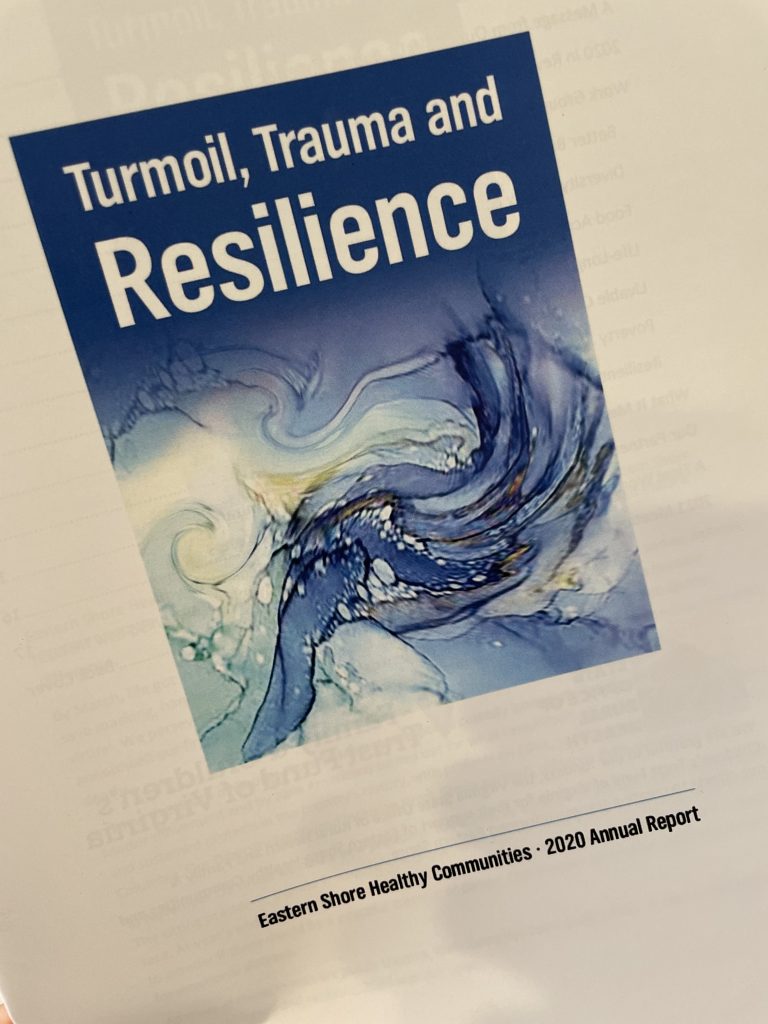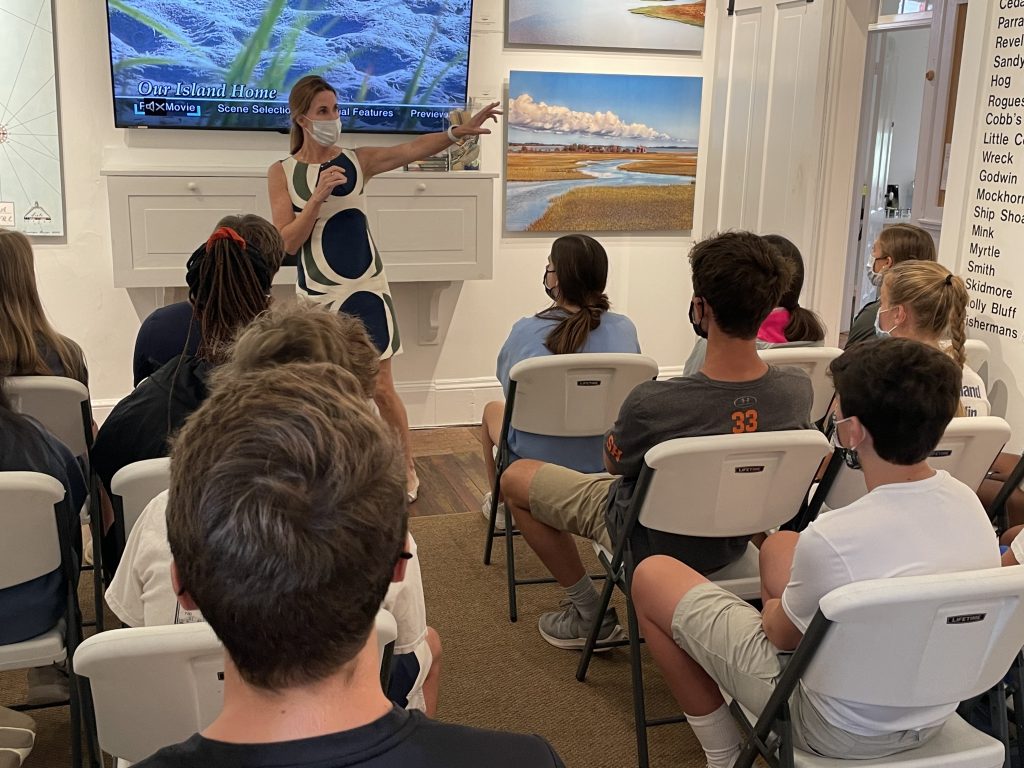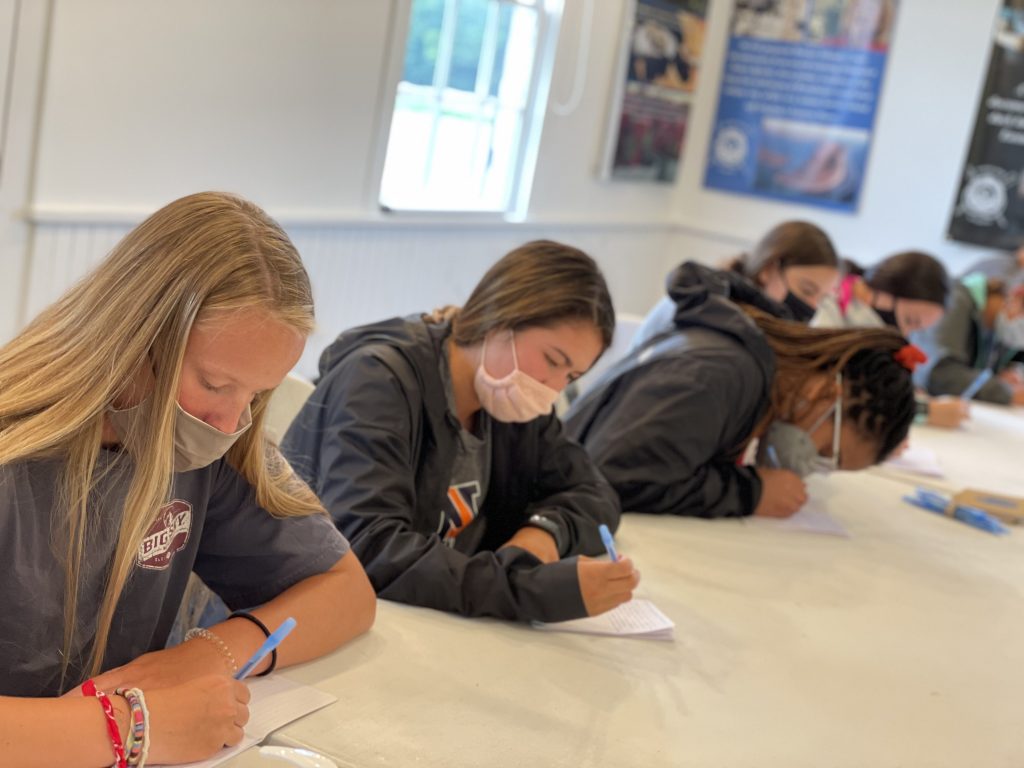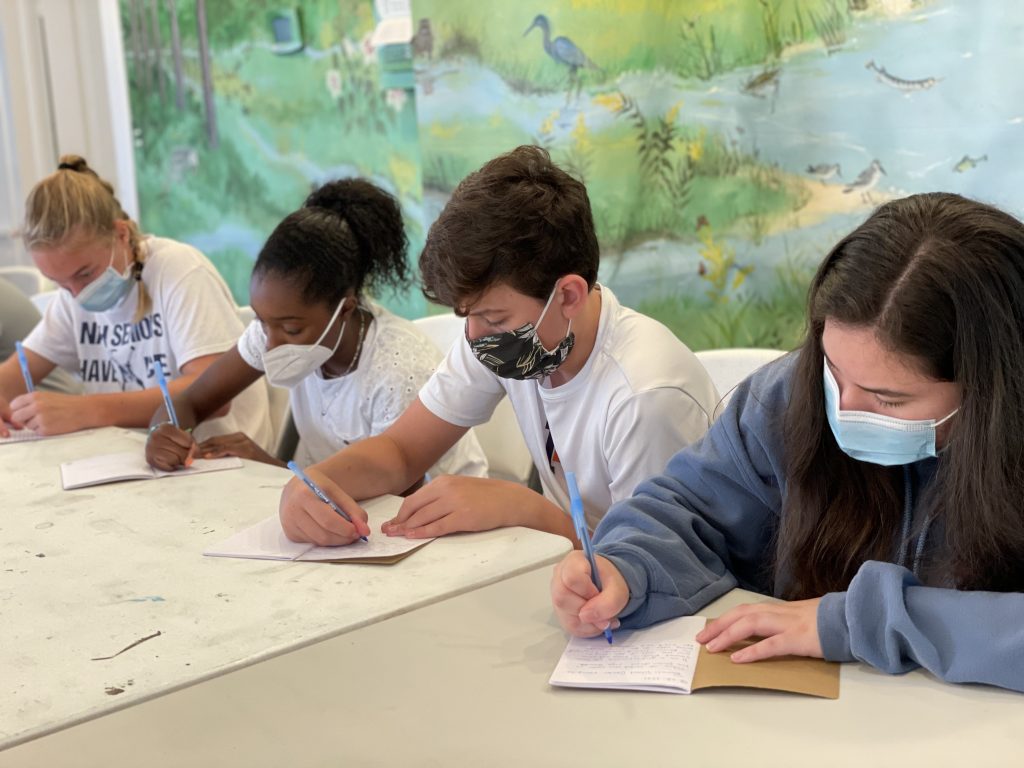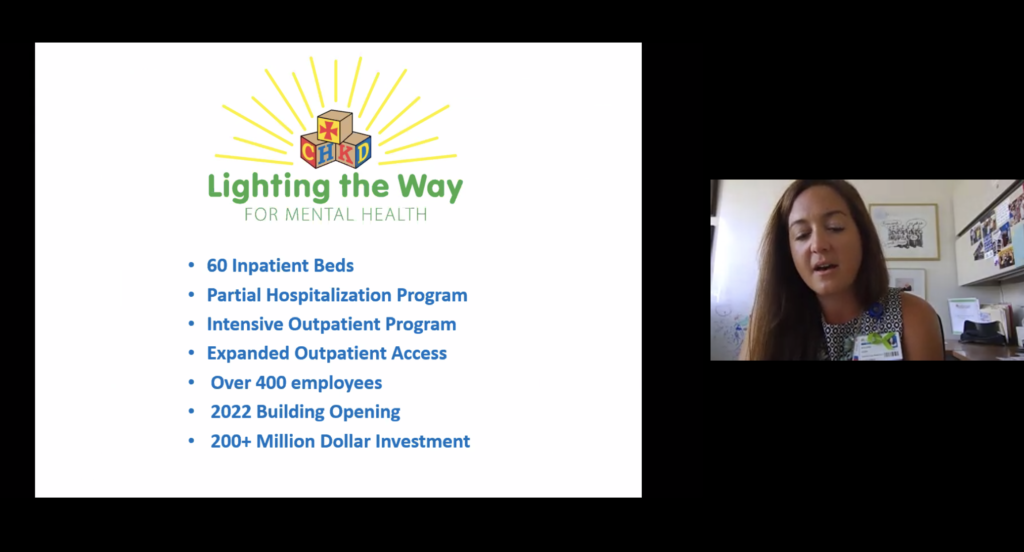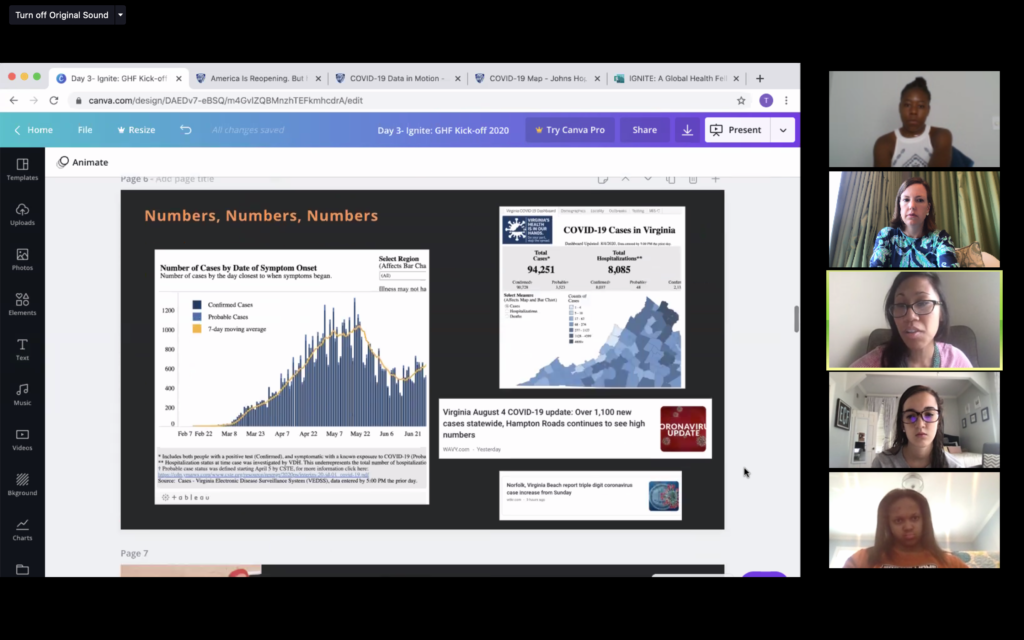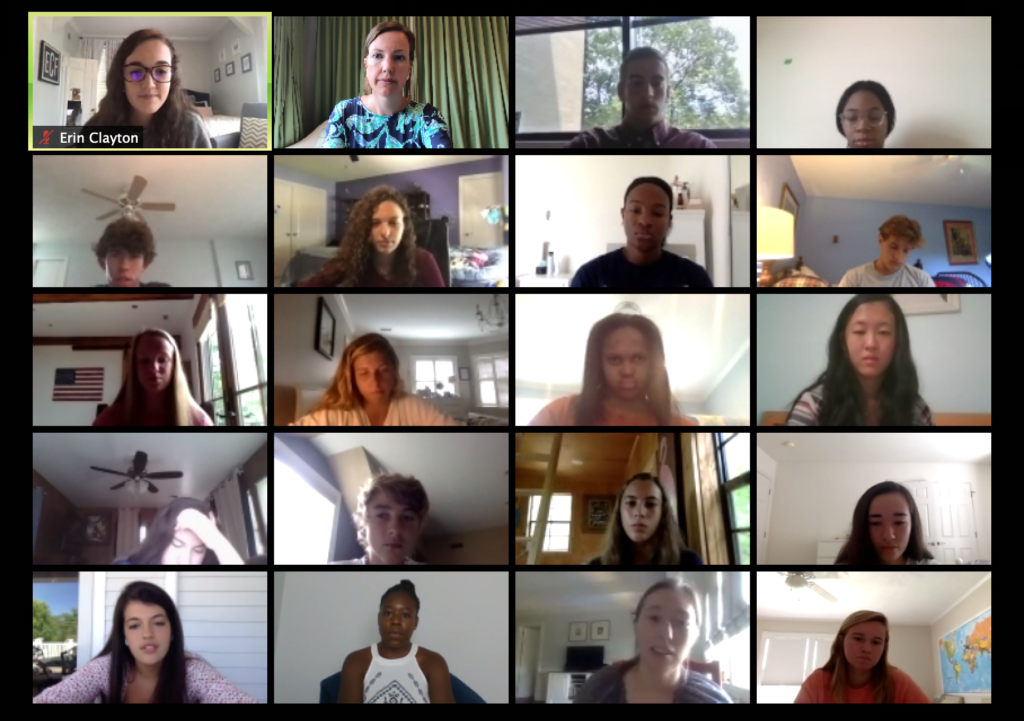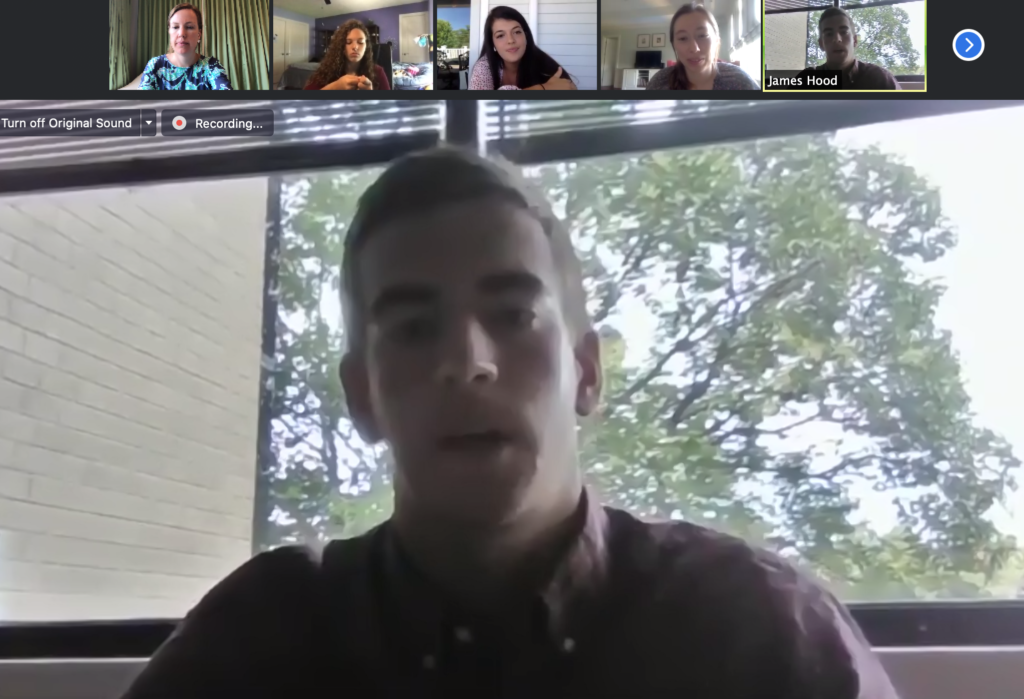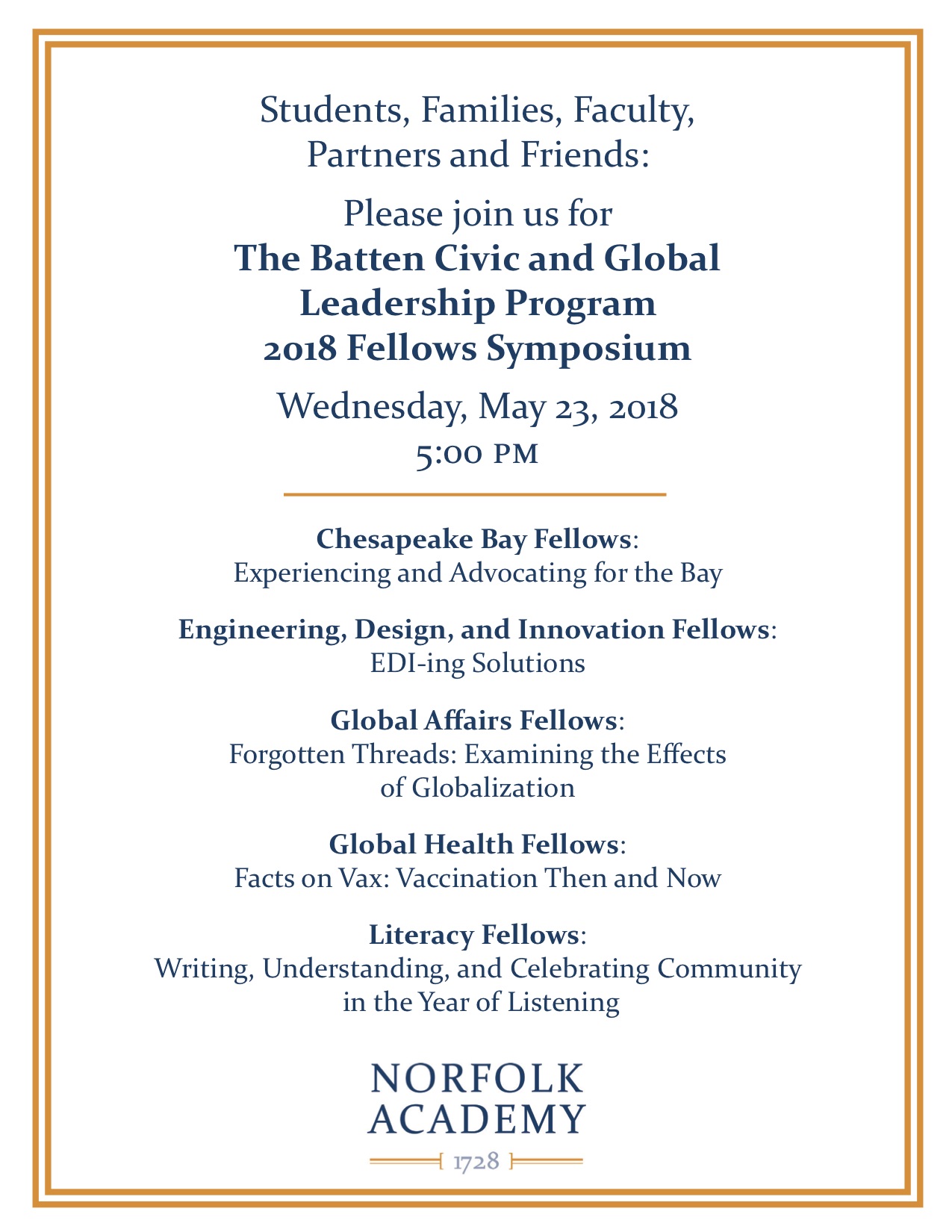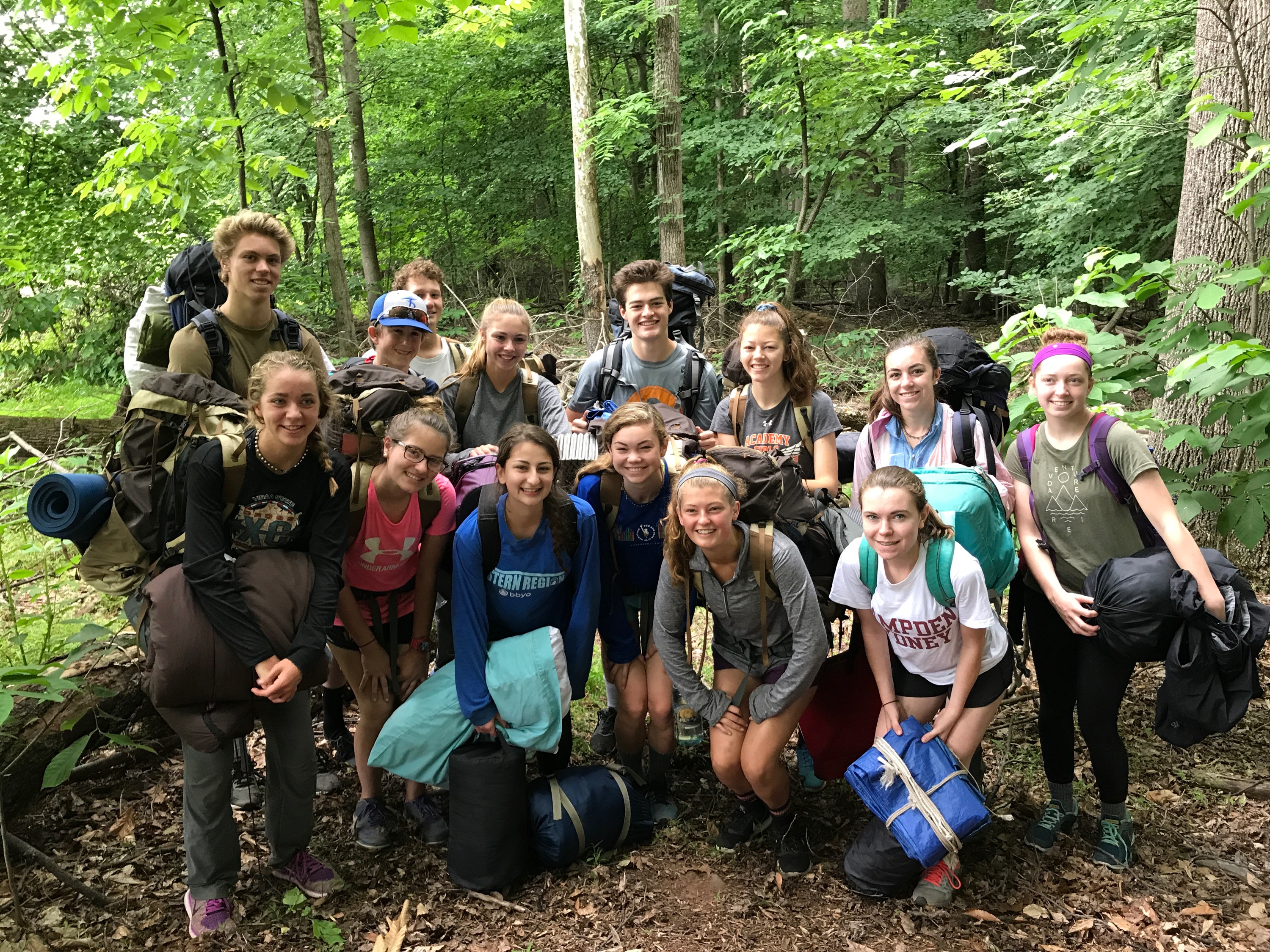Five Global Health Fellows from the Class of 2020 attended the Unite for Sight Global Health and Innovation Conference, April 13-15, 2018, at Yale University. Here are their reflections on the weekend:
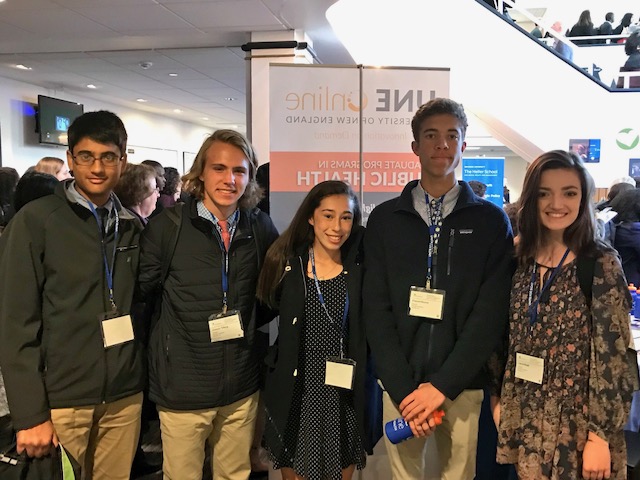
Connor Tiffany:
This past weekend, the Global Health Fellows were granted with the opportunity to attend the Unite for Sight Conference, the leading global health and social entrepreneurship conference in the world. Hosted at Yale University, this thought-provoking event convened many participants from all over the globe, including teachers, business professionals, economists, professors, doctors, and lawyers with the common goal to improve health inequity, social injustice, and access to safe, affordable care. During the conference, we attended lectures on cultural competence, global engagement and innovation, health policy and advocacy, and technology’s social impact, hosted by an insightful group of professionals with a comprehensive expertise in their fields. One of my favorite lectures of the weekend, presented by James Clarke, an African ophthalmologist working for Unite for Sight organization in Ghana, offered an intriguing lesson about culture shock and the unequaled importance of one’s culture. He explained through his striking anecdotes that his years of caring for patients have taught him to cherish his own culture, charging him to dig deep and learn the hidden values of the Ghanaian peoples. It was speakers like James Clarke, who offered a diverse perspective on personal and meaningful topics, that made the overall experience of the conference so unique! Following the long first day, we visited Pablo Vasquez, a former Norfolk Academy alumni (Class of 2016) and student at Yale University (Class of 2020), who guided us around the campus and gave us an exclusive tour of the Pierson and Branford residential colleges. While touring the campus, I was truly delighted to be walking through the halls of such a historic and renowned institution. Conclusively, my experience at the Unite For Sight Conference was exceptional, and I learned a lot about successfully implementing interventions, and working with other cultures in foreign settings. After this conference, I left feeling satisfied, enlightened, inspired, and excited by the prospects of my future success working on the ground in San Antonio, Belize.
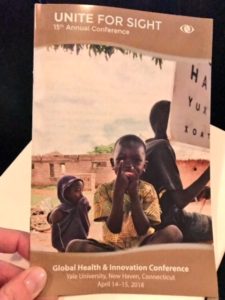
Sahib Chandi:
Early in the morning of Saturday, April 14th, we listened to the first lecture of many, given by Jordan Levy of Ubuntu Pathways, who discussed the process of Innovation. He said that once an idea is created, one must secure adequate funding through donors, achieve an appropriate scale, then change the status quo through human interaction. He also discussed the importance of community and donor involvement in any intervention. Following the keynote, we listened to a panel who touched on the importance of cultural sensitivity and competency as the key to overcoming cultural and social stigma. These inspiring words were very insightful as we ourselves think about implementation of our projects in Belize. Later that day, we heard from a group of professionals who were presenting their health innovations in low-resource settings. For example, Edgar Rodas, president of Cinterandes discussed his implementation of a mobile surgery truck in rural Ecuador. Following him, Shwetha Maddur of Seva Corps explained her innovative idea for the prevention of hypothermia in preterm infants, through a low-cost, transportable heating blanket. We ended Saturday with a Social Impact Lab, pertaining to refugee and immigrant health. Particularly, Dr. Ijeoma Nnodim presented her proposal of a mobile health clinic for immigrant communities in the inner city of Detroit, called Love on the Move. With the conclusion of Saturday, I was not only tired, but inspired by the innovation and insight of these professionals.
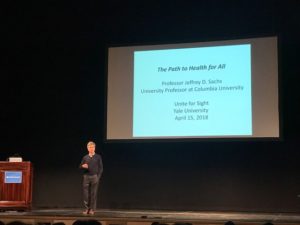 Before we had to catch a flight back home, we attended the keynote address of Sunday, in which Jeffrey Sachs, a University Professor at Columbia, discussed the importance of funding and investment to propel the Sustainable Development Goals. He also explained the correlation of U.S. aid spending and various improvements in global health. To conclude the conference for us, we attended the section on the Community Health Academy, in which they discussed this revolutionary platform for the networking and education of Community Health Workers. Having learned so much in such a short time, I feel truly inspired by the experts of the field. They have provided our program with vital information for our responsible implementation of projects in Belize.
Before we had to catch a flight back home, we attended the keynote address of Sunday, in which Jeffrey Sachs, a University Professor at Columbia, discussed the importance of funding and investment to propel the Sustainable Development Goals. He also explained the correlation of U.S. aid spending and various improvements in global health. To conclude the conference for us, we attended the section on the Community Health Academy, in which they discussed this revolutionary platform for the networking and education of Community Health Workers. Having learned so much in such a short time, I feel truly inspired by the experts of the field. They have provided our program with vital information for our responsible implementation of projects in Belize.
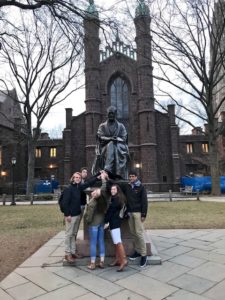
Julia Duarte:
Surrounded by countless geniuses in Global Health societies and professors from the best universities at the Unite for Sight Conference, I could not settle my nerves as I entered the big double doors leading into the architecturally beautiful Shubert Theatre. Holding my coffee and croissant from Starbucks, I sat down in a red chair and awaited the Keynote speaker, shifting through my agenda booklet. At 8:00 in the morning, introductions were made and Dr. Jordan Levy, the keynote speaker, walked onto the stage. As he began to speak, I perceived the repetition of a certain word: relationships. Dr. Levy articulated his strong belief of maintaining strong and lasting relationships with his team, locals, and the people who supported him financially. He expressed that the trust between his team and a community creates a bond that allows for a successful intervention. This theme of relationships was repeated throughout the central ideas of other speakers. For example, Mrs. Annette Cycon, the creator of a Group Peer Support for women’s mental health in rural Guatemala, not only partnered with local community health workers to provide culturally-acceptable lessons for mothers and their children, but she also collaborated with another organization on the ground, the Maya Health Alliance. With this group, they conducted perinatal home visits and added more lessons to their curriculum. The act of collaboration seems to strengthen the Global Health world and produce an intervention with the best outcome.
Another highlight from this conference was the presentations of social impact pitches. This session consisted of a five-minute presentation of a budding, potential project by a young innovator. After the presentation, the audience had a limited amount of time to ask their own questions, but the stage was quickly turned over to a couple experts, who were in essence evaluating each project. The presenter was allowed to ask two of their most pressing questions to the experts, who would try their best to answer them, and in turn, would ask some of their questions and/or concerns about the project. The intense setting created by the long pauses as presenters considered the answers to complex questions from the “judges” made the experience much more fascinating (however I did feel a twinge of pity when a presenter admitted that she did not have an answer). Overall, the creative and ingenuity-filled projects inspired me to think outside of the box regarding my own project and to confirm that there are no blinding issues that I have disregarded.
On the plane flight back to Virginia, I reflected on my weekend and realized that although my brain was filled to the rim with incredible facts about maternal health in rural Guatemala and glaring mental health issues in refugee populations, the experience of traveling with my four best friends and the best teacher-mentor out there definitely was the biggest highlight.
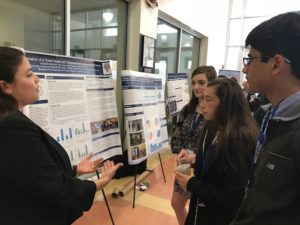
Laura Read:
On the balmy Friday morning of April 13th, Julia, Connor, Ells, Sahib, Mrs. Hall, and I excitedly departed from campus at 11:00 AM to catch our flight to New Haven, Connecticut at the Norfolk International Airport. We planned on attending the Unite for Sight Global Health and Innovation Conference, the world’s leading and largest global health conference held at Yale University. Despite a flight delay in Philadelphia, the six of us landed safely in New Haven, where we dropped off our bags at the Omni Hotel and headed out for dinner at Shake Shack.
Even though we were tired from our travels, we woke up to check in for the conference at 7:00 AM with a little help from Starbucks coffee. Jordan Levy, the keynote speaker, presented in the Shubert Theater about the importance of long-term human relationships and interactions in global health over an immediate product. We learned about the importance of authentic, truthful conversations between partners and comprehensive strategies. Following the address, we listened to a panel that further explored the importance of cultural competence and partnerships. This topic was particularly insightful and relevant to our goals in the Fellows Program.
Afterwards, we decided to divide and conquer the following sessions around campus in pairs in order to obtain the most information possible out of them. Julia and I first went to a maternal health session where we watched three presenters discuss the post-Ebola restoration of maternal and child health services in Liberia, aiding postpartum depression through support groups, and the feminization of aging women around the world. I found the second topic interesting because it directly related to our current women’s health group project. Annette Cycon, a social worker, is working to create a social curriculum to benefit women suffering from mental health issues. Mental-health-related causes of death are the most prevalent in the world, yet psychologists and psychiatrists are virtually nonexistent in developing countries. Her views and insights into cultural stigmas were fascinating.
After lunch and a debriefing session at Panera Bread, Mrs. Hall and I went to a reproductive, maternal, and child health session. We learned about BRAC’s Empowerment and Livelihoods for Adolescents program, cervical cancer prevention in Ethiopia, a checklist for safe childbirth in Haiti, and the cost-effectiveness of quality prenatal care in Rwanda. It was an intriguing session that provided information that will certainly help our group project.
Afterwards, I went to a social impact lab with Ells. This type of session allowed three or four individuals to present their company or innovation to a panel of experts and receive advice from the audience. The topics covered were facility dogs in hospitals, health safety in nail salons, and a noninvasive treatment for detecting cervical cancer. It was interesting to watch the exchange of ideas and feedback in a professional setting. My final session on Saturday was a panel about careers in global health. I learned about the importance of not viewing it as heroism, but making sure it actually means something to you, which I enjoyed hearing.
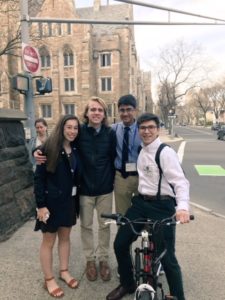 At 7:00 PM, the six of us met with Pablo Vazquez, a Norfolk Academy alum who is a student at Yale. He gave us our own personal tour of the beautiful campus, which radiated stunning Gothic architecture full of life. It was amazing to see the libraries, gyms, and theaters all hidden within residential walls. Later on, went out to dinner with him, and Julia and I had great conversations with him about sports, routines, and everything we could ever wish to know about university life. Pablo gave us all wonderful life advice, and told us to never segment our lives and put family aside. It was great to meet him.
At 7:00 PM, the six of us met with Pablo Vazquez, a Norfolk Academy alum who is a student at Yale. He gave us our own personal tour of the beautiful campus, which radiated stunning Gothic architecture full of life. It was amazing to see the libraries, gyms, and theaters all hidden within residential walls. Later on, went out to dinner with him, and Julia and I had great conversations with him about sports, routines, and everything we could ever wish to know about university life. Pablo gave us all wonderful life advice, and told us to never segment our lives and put family aside. It was great to meet him.
The following chilly Sunday morning was our last day in New Haven! We attended the keynote address given by Jeffrey D. Sachs. He spoke about the fact that global health is a right, not a luxury. It was interesting to hear his statistics given about funding and breakthroughs. Even though we couldn’t stay for the entire first session because of our early afternoon flight, we split off into pairs again to attend what we could. Sahib and I listened to a panel speak about educating community health workers. It was extremely insightful and I learned about training them though large scale social change by investing in social entrepreneurs.
At 11:00 AM, we reconvened at the Omni Hotel to catch our flight at the New Haven airport, a very small terminal with only two gates. After catching up on homework and resting on the plane, we landed safely back in Norfolk in the late afternoon.

Ells Boone:
This past weekend I attended the Unite for Sight Conference at Yale University with my fellow GHF 20s and Ms. Hall. The conference consisted of multiple 90 minute sessions on Saturday and Sunday with varying topics pertaining to global health. The sessions which I attended were: Responsible Global Engagement and Innovation Panel; Global Health Technology Social Impact Lab; Social Impact Lab: Innovative Solutions to Global Health Challenges; Building a Fulfilling Career in Global Health Panel; and Cutting-Edge Ideas in Development: GHIC Innovation Prize Semi-finalist Pitches. My favorite sessions were the social impact labs. A social impact lab is a series of presentations in which a person presents an innovation in the realm of global health. It is very similar to the show Shark Tank. The presenter has 5 minutes to present his research and project idea and then hears questions from the audience and esteemed judges. In my opinion, the best social impact pitch was Jonathan Sigworth’s which was entitled “Developing Mobile Video Courses for Spinal Cord Injury Therapy Guidance and Local Peer Mentoring Worldwide.” Sigworth’s pitch was a new app which he designed specifically for those who are paralyzed from the waist down. His app can be used to learn how to function on your own without assistance and to do activities which most people take for granted. In addition to the sessions, there was also a keynote speaker on Sunday morning. The speaker was Jeffrey Sachs who is the Director of the Center for Sustainable Development and a professor at Columbia University. Mr. Sachs gave an interesting talk about the Sustainable Development Goals and how they are achievable.
All in all, this conference was a great experience and I have come out of it inspired to do more work in global health.
